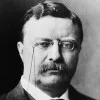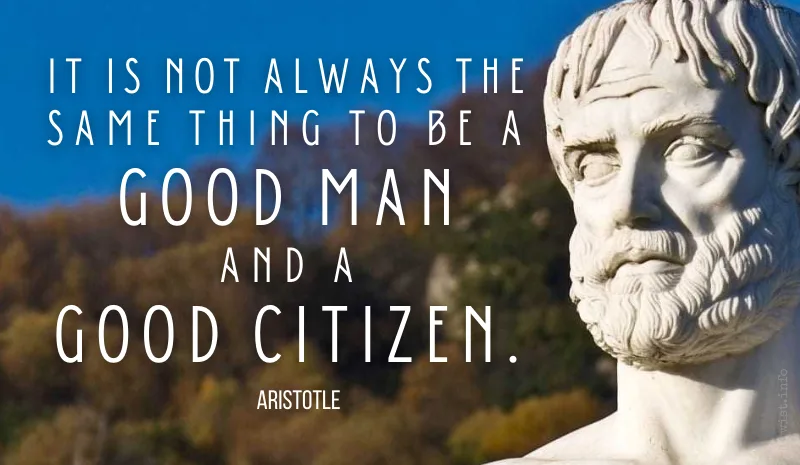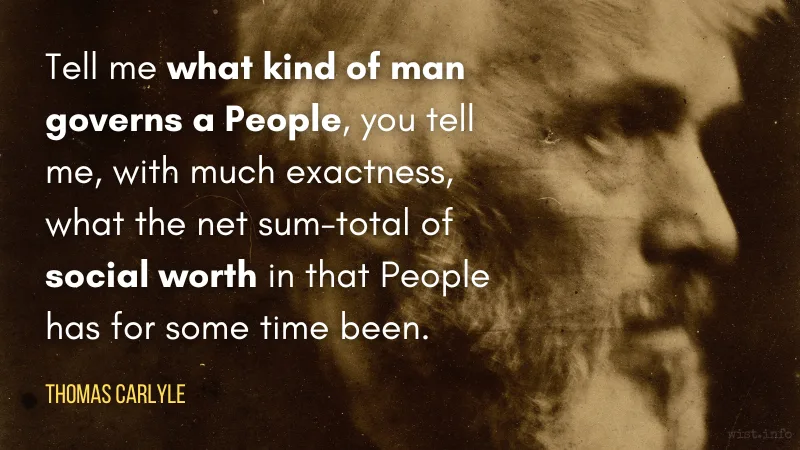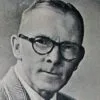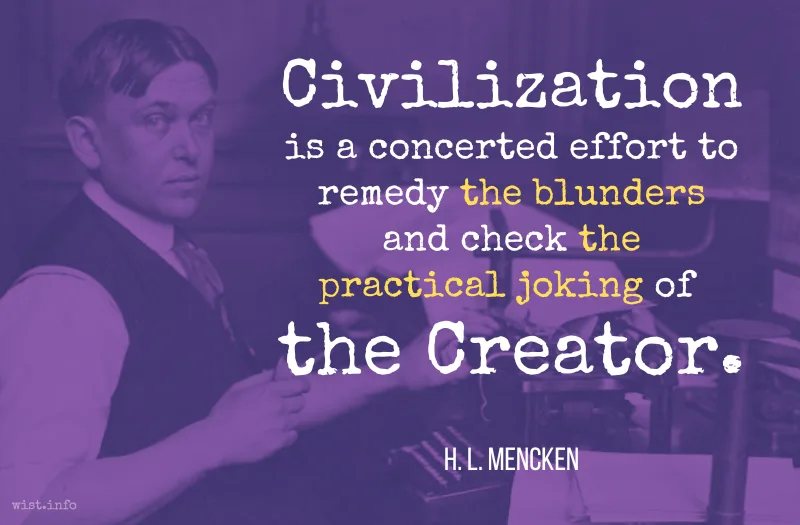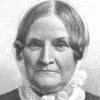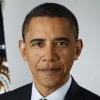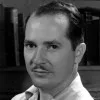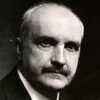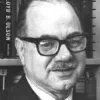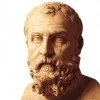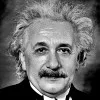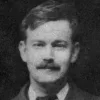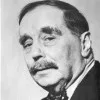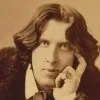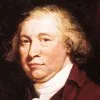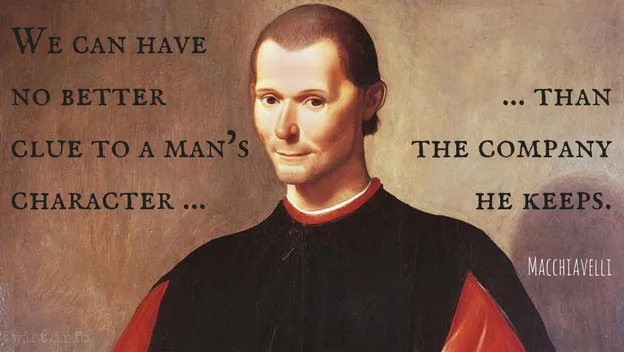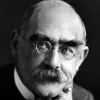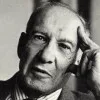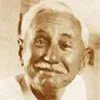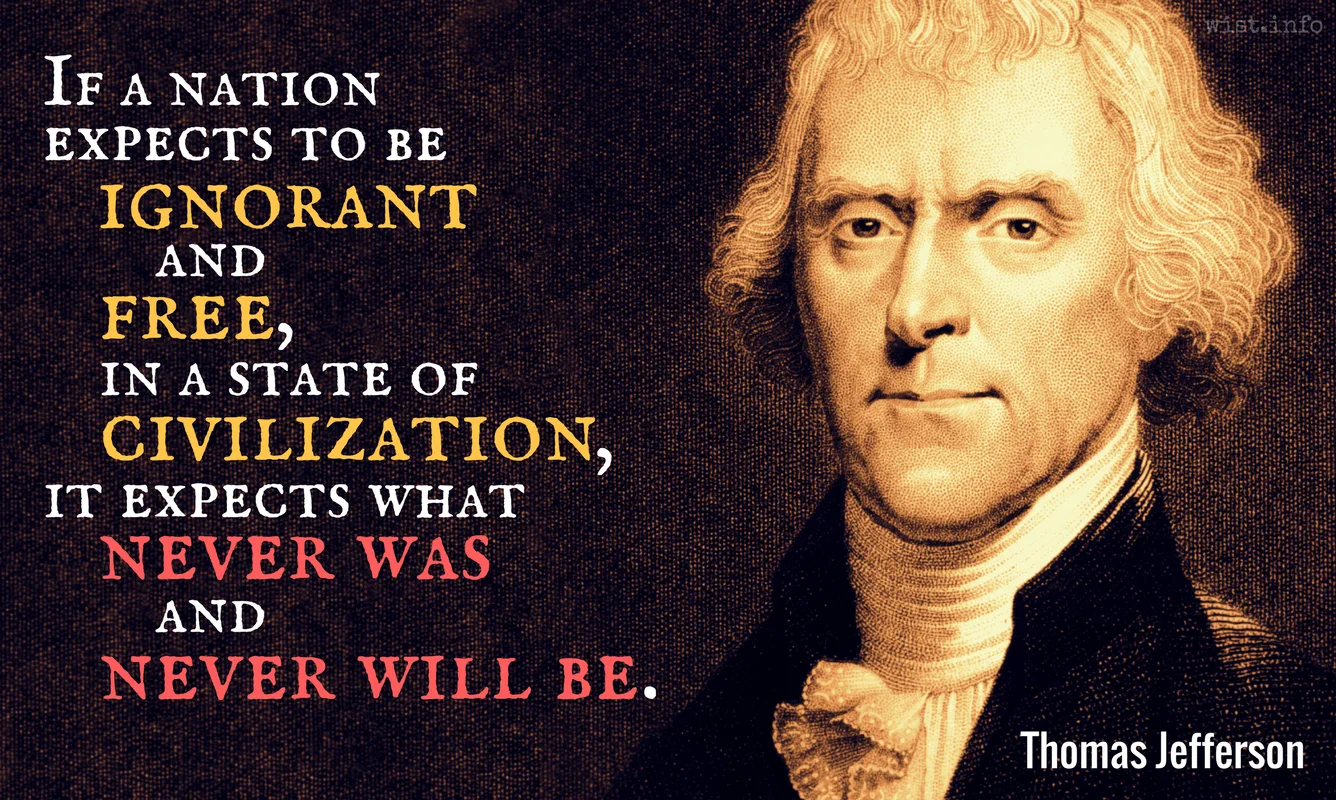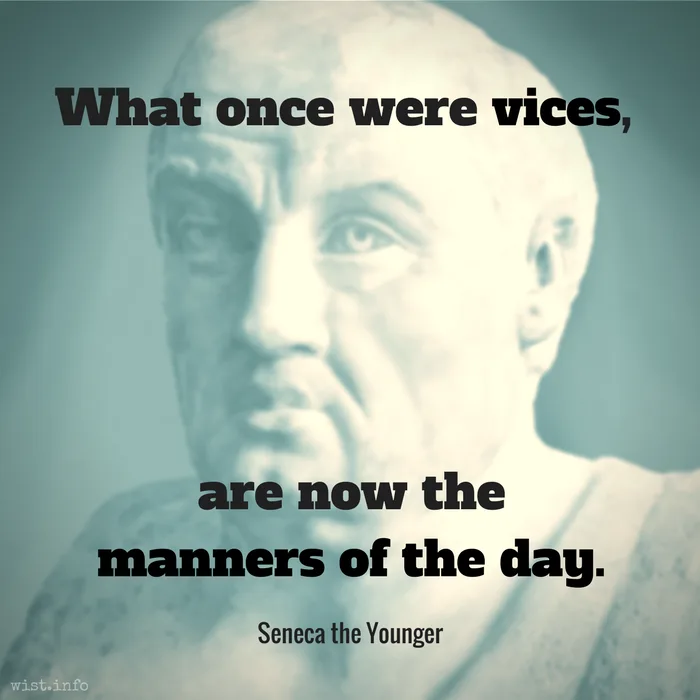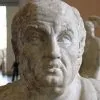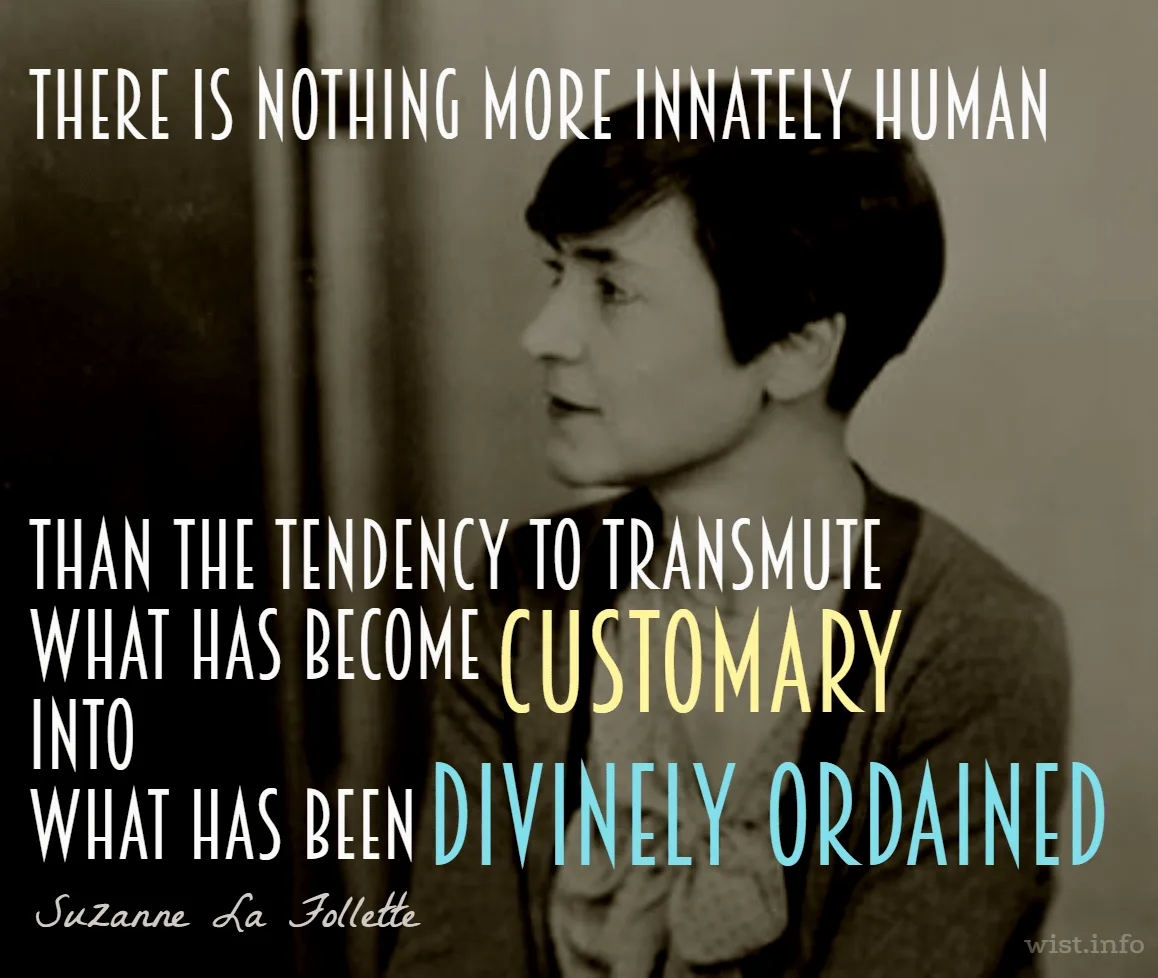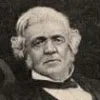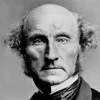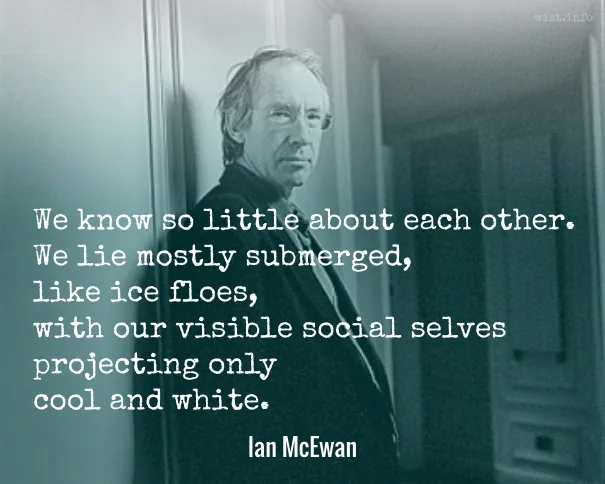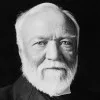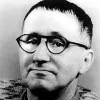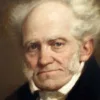That is why I decline to recognize the mere multimillionaire, the man of mere wealth, as an asset of value to any country, and especially as not an asset to my own country. If he has earned or uses his wealth in a way that makes him of real benefit, of real use — and such is often the case — why, then he does become an asset of worth. But it is the way in which it has been earned or used, and not the mere fact of wealth, that entitles him to the credit.
Theodore Roosevelt (1858-1919) American politician, statesman, conservationist, writer, US President (1901-1909)
Speech (1910-04-23), “Citizenship in a Republic [The Man in the Arena],” Sorbonne, Paris
(Source)
Quotations about:
society
Note not all quotations have been tagged, so Search may find additional quotes on this topic.
Most revolutionaries are potential tories, because they imagine that everything can be put right by altering the shape of society; once that change is effected, as it sometimes is, they see no need for any other.
George Orwell (1903-1950) English writer [pseud. of Eric Arthur Blair]
Essay (1939), “Charles Dickens,” sec. 6, Inside the Whale (1940-03-11)
(Source)
Coercion is the least efficient means of obtaining order.
Ursula K. Le Guin (1929-2018) American writer
The Dispossessed: An Ambiguous Utopia, ch. 5 (1974)
(Source)
For of course it is not always the same thing to be a good man and a good citizen.
[οὐ γὰρ ἴσως ταὐτὸν ἀνδρί τ᾽ ἀγαθῷ εἶναι καὶ πολίτῃ παντί.]
Aristotle (384-322 BC) Greek philosopher
Nicomachean Ethics [Ἠθικὰ Νικομάχεια], Book 5, ch. 2 (5.2.11) / 1130b.29 (c. 325 BC) [tr. Thomson (1953)]
(Source)
Aristotle suggests the distinction comes when a regime is corrupt or unjust, at which point carrying out the duties of a good citizen (supporting the regime) may not align with an individual's virtues.
See also Aristotle, Politics.
(Source (Greek)). Alternate translations:For perhaps it is not the same thing to be a good man, and a good citizen.
[tr. Taylor (1818), 5.2]It may be it is not the same thing to be a good man and a good citizen in every case.
[tr. Chase (1847), 5.4]The perfection of the man is not perhaps in all cases identical with the perfection of the citizens.
[tr. Williams (1869), 5.2]It is possibly not the same thing in all cases to be a good man and to be a good citizen.
[tr. Welldon (1892), 5.5]It is possible that to be a good man is not the same as to be a good citizen of any state whatever.
[tr. Peters (1893), 5.2]Perhaps it is not the same to be a good man and a good citizen of any state taken at random.
[tr. Ross (1908), 5.2]It would seem that to be a good man is not in every case the same thing as to be a good citizen.
[tr. Rackham (1934), 5.2.11]For being a good man is presumably not in every case the same as being a good citizen.
[tr. Reeve (1948)]For perhaps to be a good man is not the same as to be a good citizen in every case.
[tr. Apostle (1975)]Presumably it is not always the same thing to be a good man and a good citizen.
[tr. Thomson/Tredennick (1976)]For, presumably, being a good man is not the same as being every sort of good citizen.
[tr. Irwin/Fine (1995)]For, presumably, being a good person is not in every case the same as being a good citizen.
[tr. Crisp (2000)]For perhaps it is not the same thing in every case to be a good man and to be a good citizen.
[tr. Bartlett/Collins (2011)]
Of all the arts that of government has been brought least to perfection.
James Hilton (1900-1954) Anglo-American novelist and screenwriter
Lost Horizon, ch. 6 (1933)
(Source)
Justice insists on obligation, law on decorum. Justice is critical and discriminating; law is supervisory and commanding. Justice refers to the individual, law to the community.
[Das Recht dringt auf Schuldigkeit, die Polizei aufs Geziemende. Das Recht ist abwägend und entscheidend, die Polizei überschauend und gebietend. Das Recht bezieht sich auf den Einzelnen, die Polizei auf die Gesamtheit.]
Johann Wolfgang von Goethe (1749-1832) German poet, statesman, scientist
Sprüche in Prosa: Maximen und Reflexionen [Proverbs in Prose: Maxims and Reflections] (1833) [tr. Rönnfeldt (1900)]
(Source)
From Wilhelm Meister's Journeyman Years (1829).
(Source (German)). Alternate translations:Justice insists on obligation, law on decorum. Justice weighs and decides, law superintends and orders. Justice refers to the individual, law to society.
[tr. Saunders (1893), "Life and Character," sec. 1, # 50]Law deals with guilt, the police with what is fitting. Law considers and decides, the police surveys and commands. Law is concerned with the individual, the police with the community.
[tr. Stopp (1995), #544]
Etiquette systems of one kind or another govern all social intercourse, formal and informal, which is why faulty ones are able to do so much damage. A system that denies the innate human need for dignity to specific categories of people, typically the poor and the enslaved, fosters incendiary resentment.
Judith Martin (b. 1938) American author, journalist, etiquette expert [a.k.a. Miss Manners]
Star-Spangled Manners, ch. 1 (2003)
(Source)
[Death equalizes the scepter and the spade.]
(Other Authors and Sources)
Latin proverb
Widely used over the centuries in sermons, religious writings, and inscriptions regarding death and the vanity of worldly rank and honors. Citations I found go back at least to the 16th Century, with use peaking, then tailing off in the 19th Century.
While attributed in various places, without citation, to Lucan, Lucian, or Horace, it does not appear to be actually from any of those writers.
Alternate translations / renderings:Death maketh sceptres and mattocks equal, and as soon arresteth he the prince that carrieth the sceptre, as the poor man that diggeth with the mattock.
[tr. Grindal (1564)]Scepter and crown
Must tumble down,
And in the dust be equal made
With the poor crooked scythe and spade.
[tr. Shirley (1654)]Death mingles scepters with spades.
[tr. Henry (1806)]Death is the head of the leveling party.
[tr. Cawdry (1869)]In death there is no difference betwixt the king and the beggar.
[tr. Cawdry (1869)]In death there is no difference made
Between the sceptre and the spade.
[Inverness tombstone of Samuel Urquhart (1700); see Swift, below]In Death, no Difference is made,
Betweene the Sceptre, and the Spade.
[Inverness tombstone of John Cutherbert of Drakes (1711)]Death makes sceptres and hoes equal.
[tr. Aavitsland (2012)]Death makes scepters equal with hoes.
[tr. Stone (2013)]
Variants:Mors dominos servis et sceptra ligonibus æquat,
Dissimiles simili condicione trahens.
[Death comes alike to monarch, lord, and slave,
And levels all distinctions in the grave.]
[Hall (1909), from Colman (c. 1633)]Ah! who, in our degenerate days,
As nature prompts, his offering pays?
Here nature never difference made
Between the sceptre and the spade.
[Swift (1730), regarding the goddess of the sewer, Cloacina]
The liberty we obtain by being members of civilized society, would be licentiousness, if it allowed us to harm others, and slavery, if it prevented us from benefiting ourselves. True liberty, therefore, allows each individual to do all the good he can to himself, without injuring his neighbor.
Charles Caleb "C. C." Colton (1780-1832) English cleric, writer, aphorist
Lacon: Or, Many Things in Few Words, Vol. 1, § 226 (1820)
(Source)
Tell me what kind of man governs a People, you tell me, with much exactness, what the net sum-total of social worth in that People has for some time been.
Thomas Carlyle (1795-1881) Scottish essayist and historian
Essay (1850-04-01), “Downing Street,” Latter-Day Pamphlets, No. 3
(Source)
Madame de Tencin said that intelligent people often erred in their conduct because they could never believe that the world in general is as stupid as it is.
[Mme de Tencin disait que les gens d’esprit faisaient beaucoup de fautes en conduite, parce qu’ils ne croyaient jamais le monde assez bête, aussi bête qu’il l’est.]
Nicolas Chamfort (1741-1794) French writer, epigrammist (b. Nicolas-Sébastien Roch)
Products of Perfected Civilization [Produits de la Civilisation Perfectionnée], Part 2 “Characters and Anecdotes [Caractères et Anecdotes],” ¶ 715 (1795) [tr. Merwin (1969)]
(Source)
(Source (French)). Alternate translations:Mme de Tencin said that people with spirit make many mistakes in their actions because they never believe that society is brutish enough, as brutish as it is.
[tr. Siniscalchi (1994)]Madame de Tencin said that many very clever people made social blunders because they could never believe that society was quite as stupid as it really was.
[tr. Parmée (2003), ¶382]The great mistake made by intelligent people is to refuse to believe that the world is as stupid as it is.
[Forbes]
That it is expedient to kill a king, rather than wait for his natural demise, is something a populace can come to accept, perhaps to relish. That the people’s own customs and costumes are to be radically changed by edict, rather than being allowed to evolve haphazardly and linger sentimentally beyond their time, is not. Yet messing with the national etiquette is one of the great spoils of revolutionary success.
Judith Martin (b. 1938) American author, journalist, etiquette expert [a.k.a. Miss Manners]
Star-Spangled Manners, Prologue (2003)
(Source)
When a society abandons its ideals just because most people can’t live up to them, behavior gets very ugly indeed.
The first fundamental of successful city life: People must take a modicum of responsibility for each other even if they have no ties to each other. This is a lesson no one learns by being told. It is learned from the experience of having other people without ties of kinship or close friendship or formal responsibility to you take a modicum of responsibility for you.
Jane Jacobs (1916-2006) American-Canadian journalist, author, urban theorist, activist
The Death and Life of Great American Cities, Part 1, ch. 4 (1961)
(Source)
I told her that what made being alive almost worthwhile for me was all the saints I met almost anywhere, people who were behaving decently in an indecent society.
Kurt Vonnegut, Jr. (1922-2007) American novelist, journalist
Letter (1992-10-16) to Robert Maslansky
(Source)
Phrases used in a number of places by Vonnegut, often as his reply when a woman wrote him to ask if it were right to bring a child into a world as bad as this one; he then encouraged his readers or listeners to become a saint for that child. He also used the phrase to describe the underlying theme of his writing.
Other variants:I replied that what made being alive almost worthwhile for me was the saints I met, people behaving unselfishly and capably. They turned up in the most unexpected places.
[Timequake, ch. 62 (1997)]I replied that what made living almost worthwhile for me were the saints I met. They could be anywhere. They were people who behaved decently in an indecent society.
[Kevin Alexander Bacon, ed., At Millennium's End: New Essays on the Work of Kurt Vonnegut, Foreword (1998-11-11) (2001)]What makes life worth living are the saints I meet -- they can be long-time friends or someone I meet on a street. They find a way to behave decently in an indecent society.
["Vonnegut Unbound," Interview by Christopher R. Blazejewski, The Harvard Crimson (2000-05-12)]I replied that what made being alive almost worthwhile for me, besides music, was all the saints I met, who could be anywhere. By saints I meant people who behaved decently in a strikingly indecent society.
[Lecture (2003-09-22), University of Wisconsin, Madison; reprinted in "Knowing What's Nice," In These Times (2003-11-06)]What makes life worth living are the saints. You meet saints everywhere. They can be anywhere. They are people behaving decently in an indecent society.
[Frequently quoted version]
In a land of great wealth, families must not live in hopeless poverty. In a land rich in harvest, children just must not go hungry. In a land of healing miracles, neighbors must not suffer and die untended. In a great land of learning and scholars, young people must be taught to read and write.
Lyndon B. Johnson (1908-1973) American politician, educator, US President (1963-69)
Speech (1965-01-20), Inaugural Address, Washington, D. C.
(Source)
There is a quality even meaner than outright ugliness or disorder, and this meaner quality is the dishonest mask of pretended order, achieved by ignoring or suppressing the real order that is struggling to exist and to be served.
Jane Jacobs (1916-2006) American-Canadian journalist, author, urban theorist, activist
The Death and Life of Great American Cities, Introduction (1961)
(Source)
On urban planning that disregards actual needs for gratuitous features that please outside observers.
To give up the task of reforming society is to give up one’s responsibility as a free man. The task itself is endless, and large parts of it, sometimes the whole of it, must be performed anew by each succeeding generation.
Whenever and wherever societies have flourished and prospered rather than stagnated and decayed, creative and workable cities have been at the core of the phenomenon. Decaying cities, declining economies, and mounting social troubles travel together. The combination is not coincidental.
Jane Jacobs (1916-2006) American-Canadian journalist, author, urban theorist, activist
The Death and Life of Great American Cities, Foreword (1993 ed.)
(Source)
The dinner table is the center for the teaching and practicing not just of table manners but of conversation, consideration, tolerance, family feeling, and just about all the other accomplishments of polite society except the minuet.
Judith Martin (b. 1938) American author, journalist, etiquette expert [a.k.a. Miss Manners]
Miss Manners’ Guide for the Turn-of-the-Millennium, Part 2 “Home Life,” “Parents and Children” (1989)
(Source)
Of course one does meet brilliant men, but they are isolated. The fashion nowadays is all for groups and societies of every sort. — It is always a sign of mediocrity in people when they herd together, whether their group loyalty is to Solovyev or to Kant or Marx. The truth is only sought by individuals, and they break with those who do not love it enough.
Boris Pasternak (1890-1960) Russian poet, novelist, and literary translator
Doctor Zhivago [До́ктор Жива́го], Part 1, ch. 1 “The Five-O’Clock Express,” sec. 4 [Nikolai Nikolaievich] (1955) [tr. Hayward & Harari (1958), UK ed.]
(Source)
Alternate translations:Yes, there are gifted men, but the fashion nowadays is all for groups and societies of every sort. Gregariousness is always the refuge of mediocrities, whether they swear by Solovyiëv or Kant or Marx. Only individuals seek the truth, and they shun those whose sole concern is not the truth.
[tr. Hayward & Harari (1958), US ed.]You come across talented people. But now various circles and associations are the fashion. Every herd is a refuge for giftlessness, whether it's a faith in Soloviev, or Kant, or Marx. Only the solitary seek the truth, and they break with all those who don't love it sufficiently.
[tr. Pevear & Volokhonsky (2010)]
The rationale that etiquette should be eschewed because it fosters inequality does not ring true in a society that openly admits to a feverish interest in the comparative status-conveying qualities of sneakers. Manners are available to all, for free.
Judith Martin (b. 1938) American author, journalist, etiquette expert [a.k.a. Miss Manners]
Common Courtesy, “On Etiquette as Language, Weapon, Custom, and Craft” (1985)
(Source)
The central task of education is to implant a will and facility for learning; it should produce not learned but learning people. The truly human society is a learning society, where grandparents, parents, and children are students together.
Eric Hoffer (1902-1983) American writer, philosopher, longshoreman
Reflections on the Human Condition, ch. 1, # 32 (1973)
(Source)
I am, somehow, less interested in the weight and convolutions of Einstein’s brain than in the near certainty that people of equal talent have lived and died in cotton fields and sweatshops.
Stephen Jay Gould (1941-2002) American paleontologist, geologist, biologist
The Panda’s Thumb, Part 4, ch. 13 “Wide Hats and Narrow Minds” (1980)
(Source)
Writing, printing, and the Internet give a false sense of security about the permanence of culture. Most of the million details of a complex, living culture are transmitted neither in writing nor pictorially. Instead, cultures live through word of mouth and example. That is why we have cooking classes and cooking demonstrations, as well as cookbooks. That is why we have apprenticeships, internships, student tours, and on-the-job training as well as manuals and textbooks. Every culture takes pains to educate its young so that they, in their turn, can practice and transmit it completely. Educators and mentors, whether they are parents, elders, or schoolmasters, use books and videos if they have them, but they also speak, and when they are most effective, as teachers, parents, or mentors, they also serve as examples.
Jane Jacobs (1916-2006) American-Canadian journalist, author, urban theorist, activist
Dark Age Ahead, ch. 1 “The Hazard” (2004)
(Source)
It may be that we have become so feckless as a people that we no longer care how things do work, but only what kind of quick, easy outer impression they give. If so, there is little hope for our cities or probably for much else in our society. But I do not think this is so.
Jane Jacobs (1916-2006) American-Canadian journalist, author, urban theorist, activist
The Death and Life of Great American Cities, Introduction (1961)
(Source)
You should swallow a toad every morning, when going out into high society, so as to encounter nothing more disgusting during the day.
[Faudrait avaler un crapaud tous les matins, pour ne trouver plus rien de dégoûtant le reste de la journée, quand on devait la passer dans le monde.]Nicolas Chamfort (1741-1794) French writer, epigrammist (b. Nicolas-Sébastien Roch)
Products of Perfected Civilization [Produits de la Civilisation Perfectionnée], Part 2 “Characters and Anecdotes [Caractères et Anecdotes],” ch. 5 (1795) [tr. Dusinberre (1992)]
(Source)
Though usually attributed directly to Chamfort, he credits the phrase to a M. de Lassay.
Fragment 863. (Source (French)). Alternate translations:It would be necessary to swallow a toad every morning, in order not to find anything disgusting the rest of the day, when one has to spend it in the world.
[tr. Matthews (1877)]One must swallow a toad every morning, when one has to go out in the world, so as not to find anything more disgusting during the day.
[tr. Merwin (1969)]Swallow a toad in the morning and you will encounter nothing more disgusting the rest of the day.
[Source]
We may define all the essentials of politeness, but we cannot determine how and where they should be used; they depend on ordinary habits and customs, are connected with times and places, and are not the same in both sexes nor in different ranks of life; intelligence alone cannot find this out; politeness is acquired and perfected by imitation.
[L’on peut définir l’esprit de politesse, l’on ne peut en fixer la pratique: elle suit l’usage et les coutumes reçues; elle est attachée aux temps, aux lieux, aux personnes, et n’est point la même dans les deux sexes, ni dans les différentes conditions; l’esprit tout seul ne la fait pas deviner: il fait qu’on la suit par imitation, et que l’on s’y perfectionne.]Jean de La Bruyère (1645-1696) French essayist, moralist
The Characters [Les Caractères], ch. 5 “Of Society and Conversation [De la Société et de la Conversation],” § 32 (5.32) (1688) [tr. Van Laun (1885)]
(Source)
(Source (French)). Alternate translations:We may define Politeness, tho we can't tell where to fix it in practice. It observes received Uses and Customs, 'tis bound to times and places, and is not the same thing in the two Sexes, or in different conditions. Wit alone cannot attain it: 'tis acquired and compleated by Imitation.
[Bullord ed. (1696)]We may define Politeness, tho we can't tell where to fix it in Practice. It observes receiv'd Uses and Customs, is bound to Times and Places, and is nto the same thing in the two Sexes, or in different Conditions; Wit alone cannot attain it, 'tis acquir'd and brought to perfection by imitation.
[Curll ed. (1713)]It is possible to define the spirit of politeness, but not to lay down rules for its practice: it depends on custom and convention; it is related to periods and places and people, and it is not the same for the two sexes nor for various social conditions; one cannot attain it through intelligence alone, yet intelligence can enable one to imitate it, and to acquire perfection in it.
[tr. Stewart (1970)]
And so when I hear so much impatient and irritable complaint, so much readiness to replace what we have by guardians for us all, those supermen, evoked somewhere from the clouds, whom none have seen and none are ready to name, I lapse into a dream, as it were. I see children playing on the grass; their voices are shrill and discordant as children’s are; they are restive and quarrelsome; they cannot agree to any common plan; their play annoys them; it goes poorly. And one says, let us make Jack the master; Jack knows all about it; Jack will tell us what each is to do and we shall all agree. But Jack is like all the rest; Helen is discontented with her part and Henry with his, and soon they fall again into their old state. No, the children must learn to play by themselves; there is no Jack the master. And in the end slowly and with infinite disappointment they do learn a little; they learn to forbear, to reckon with anther, accept a little where they wanted much, to live and let live, to yield when they must yield; perhaps, we may hope, not to take all they can. But the condition is that they shall be willing at least to listen to one another, to get the habit of pooling their wishes. Somehow or other they must do this, if the play is to go on; maybe it will not, but there is no Jack, in or out of the box, who can come to straighten the game.
Learned Hand (1872-1961) American jurist
“Democracy: Its Presumptions and Realities,” speech, Federal Bar Association, Washington, DC (1932-03-08)
(Source)
Collected in The Spirit of Liberty (1953).
The condition of our survival in any but the meagerest existence is our willingness to accommodate ourselves to the conflicting interests of others, to learn to live in a social world.
Learned Hand (1872-1961) American jurist
“To Yale Law Graduates,” speech, Yale Law School (1931-06-07)
(Source)
Collected in The Spirit of Liberty (1953).
Language both reflects and shapes society. Culture shapes language and then language shapes culture. Little wonder that the words we use to talk to each other, and about each other, are the most important words in our language: they tell us who I am, they tell us who you are, they tell us who “they” are.
Rosalie Maggio (1944-2021) American writer
Unspinning the Spin: The Women’s Media Center Guide to Fair and Accurate Language, “Writing Guidelines / Introduction” (2014)
(Source)
The first sentence (and much of the groundwork for the overall work) is included in her The Bias-Free Word Finder: A Dictionary of Non-Discriminatory Language, Introduction (1992).
The source link is to the web page that the WMC set up for the book.
I will apologise for many things that I have done, but I will not apologise for the things that should never be apologised for. It is a little theory of mine that has much exercised my mind lately, that most of the problems of this silly and delightful world derive from our apologising for those things which we ought not to apologise for, and failing to apologise for those things for which apology is necessary.
Stephen Fry (b. 1957) British actor, writer, comedian
Moab Is My Washpot, “Falling In,” ch. 3 (1997)
(Source)
Love, such as it exists in high society, is merely an exchange of whims and the contact of skins.
[L’amour, tel qu’il existe dans la société, n’est que l’échange de deux fantaisies et le contact de deux épidermes.]
Nicolas Chamfort (1741-1794) French writer, epigrammist (b. Nicolas-Sébastien Roch)
Products of Perfected Civilization [Produits de la Civilisation Perfectionée], Part 1 “Maxims and Thoughts [Maximes et Pensées],” ch. 6, ¶ 359 (1795) [tr. Dusinberre (1992)]
(Source)
(Source (French)). Alternate translations:Love as it exists in society is nothing more than the exchange of two fancies and the contact of two epidermes.
[tr. Hutchinson (1902)]Love, as it s practiced in Society, is nothing but the exchange of two caprices and the contact of two skins.
[tr. Mathers (1926)]Love as it exists in society is merely the mingling of two fantasies and the contact of two skins.
[tr. Merwin (1969)]Love as it exists in society is only the exchange of two fantasies and the contact of two epidermises.
[tr. Sinicalchi]
Physical scourges and the calamities of human nature rendered society necessary. Society has added to natural misfortunes. The drawbacks of society have made government necessary, and government adds to society’s misfortunes. There is the history of human nature in a nutshell.
[Les fléaux physiques, et les calamités de la nature humaine ont rendu la Société nécessaire. La Société a ajouté aux malheurs de la Nature. Les inconvéniens de la Société ont amené la nécessité du gouvernement, et le gouvernement ajoute aux malheurs de la Société. Voilà l’histoire de la nature humaine.]
Nicolas Chamfort (1741-1794) French writer, epigrammist (b. Nicolas-Sébastien Roch)
Products of Perfected Civilization [Produits de la Civilisation Perfectionée], Part 1 “Maxims and Thoughts [Maximes et Pensées],” ch. 1, ¶ 67 (1795) [tr. Hutchinson (1902)]
(Source)
(Source (French)). Alternate translations:The physical plagues and misfortunes of human nature have made Society necessary. Society has added to the ills of Nature. The difficulties of Society have created the necessity for Government, and Government now adds to the evils of Society. There you have the history of man.
[tr. Mathers (1926)]Physical disasters and the calamities of human nature have rendered society necessary. To the miseries of nature, society has added its own. The difficulties of society have evolved the necessity for government, and government has added to the miseries of society. This is the history of human nature.
[tr. Merwin (1969)]Physical disasters and the calamities of human nature made society necessary. Society's ordeals were then added to those of nature. The drawbacks of society led to the need for government, whereupon the evils of government were added to those of society. Such is the history of human nature.
[tr. Dusinberre (1992)]Physical plagues and the calamities of nature made society necessary. Society added to the misfortunes of nature. The inconveniences of society brought the necessity of government, and the government added to the misfortunes of society. This is the history of human nature.
[tr. Sinicalchi]
The art of the parenthesis is one of the great secrets of eloquence in society.
[L’art de la parenthèse est un des grands secrets de l’éloquence dans la Société.]
Nicolas Chamfort (1741-1794) French writer, epigrammist (b. Nicolas-Sébastien Roch)
Products of Perfected Civilization [Produits de la Civilisation Perfectionée], Part 1 “Maxims and Thoughts [Maximes et Pensées],” ch. 3, ¶ 243 (1795) [tr. Sinicalchi]
(Source)
(Source (French)). Alternate translations:The art of the parenthesis is one of the great secrets of social eloquence.
[tr. Mathers (1926)]The art of parenthesis is one of the great secrets of eloquence in society.
[tr. Merwin (1969)]
It is a truth universally acknowledged, that a single man in possession of a good fortune, must be in want of a wife. However little known the feelings or views of such a man may be on his first entering a neighbourhood, this truth is so well fixed in the minds of the surrounding families, that he is considered the rightful property of some one or other of their daughters.
“In society,” M… would say, “you have three sorts of friends: those who love you, those who couldn’t care less about you, and those who hate you.”
«Dans le monde, disait M…, vous avez trois sortes d’amis: vos amis qui vous aiment, vos amis qui ne se soucient pas de vous, et vos amis qui vous haïssent.»
Nicolas Chamfort (1741-1794) French writer, epigrammist (b. Nicolas-Sébastien Roch)
Products of Perfected Civilization [Produits de la Civilisation Perfectionnée], Part 2 “Characters and Anecdotes [Caractères et Anecdotes],” ch. 8 (1795) [tr. Parmée (2003), ¶343]
(Source)
(Source (French)). Alternate translations:“In the world,” remarked some one to me, “you have three kinds of friends: the friends who love you, the friends who do not trouble their heads about you, and the friends who hate you.”
[tr. Hutchinson (1902)]M— said, "In society you have three kinds of friends: your friends who are fond of you, your friends who don’t care either way, and your friends who detest you."
[tr. Merwin (1969)]"In the world," said M..., you have three sorts of friends: the friends who love you; the friends who don't care about you, and the friends who hate you."
[tr. Pearson (1973)]You have three sorts of friend in polite society, M— used to say. Friends who are fond of you; friends who are unconcerned about you; friends who detest you.
[tr. Dusinberre (1992)]"There are three sorts of friends in high society," M— used to say. "Friends who are fond of you, friends who don't care about you, and friends who detest you."
[tr. Dusinberre (1992), "Sampler"]
Philosophy complains that Custom has hoodwinked us, from the first; that we do everything by Custom, even Believe by it; that our very Axioms, let us boast of Free-thinking as we may, are oftenest simply such Beliefs as we have never heard questioned. Nay, what is Philosophy throughout but a continual battle against Custom; an ever-renewed effort to transcend the sphere of blind Custom, and so become Transcendental?
Thomas Carlyle (1795-1881) Scottish essayist and historian
Sartor Resartus, Book 3, ch. 8 (1831)
(Source)
That society is badly arranged which forces nearly all women to be servants.
Henri Barbusse (1873-1935) French novelist, poet, journalist, activist
Light, ch. 23 (1919)
(Source)
Civilization is a concerted effort to remedy the blunders and check the practical joking of the Creator.
H. L. Mencken (1880-1956) American writer and journalist [Henry Lewis Mencken]
A Little Book in C Major, ch. 2, § 2 (1916)
(Source)
Variant:CIVILIZATION. A concerted effort to remedy the blunders and check the practical joking of God.
[A Book of Burlesques, "The Jazz Webster" (1924)]
The surest safeguard against treason is a polity so just and equitable that no one will wish to betray it. Such an inspiration of men’s affection and men’s confidence is a more dependable guarantee of national security than the most searching catechism or the most diligent secret police. As we depart from this principle we confess our weakness, to our enemies as well as to ourselves. As we are faithful to it we realize our strength and show it to the world.
Whitney Griswold (1906–1963) American historian, educator [Alfred Whitney Griswold]
“Freedom, Security, and the University Tradition,” speech, Columbia University Bicentennial (1954-06-02)
(Source)
Reprinted in Griswold, In the University Tradition (1957).
If you want to go off by yourself and be a hermit, you can do whatever you want. But if you want interaction with other people, then by definition you have to buy into the social contract and restrain some of your behavior some of the time.
Judith Martin (b. 1938) American author, journalist, etiquette expert [a.k.a. Miss Manners]
“Polite Company,” interview by Hara Estroff Marano, Psychology Today (1998-03)
(Source)
Etiquette is about all of human social behavior. Behavior is regulated by law when etiquette breaks down or when the stakes are high — violations of life, limb, property, and so on. Barring that, etiquette is a little social contract we make that we well restrain some of our more provocative impulses in return for living more or less harmoniously in a community.
Judith Martin (b. 1938) American author, journalist, etiquette expert [a.k.a. Miss Manners]
“Polite Company,” interview by Hara Estroff Marano, Psychology Today (1998-03)
(Source)
How can a nation be called great if its bread tastes like Kleenex?
Julia Child (1912-2004) American chef and writer
(Misattributed)
(Source)
Not found in Child's works, it appears to have been coined by Joan Barthel in an article about Child: "How to Avoid TV Dinners While Watching TV," New York Times Magazine (1966-08-07):"The French Chef" [...] educational TV's answer to underground movies and pop-op cults -- the program that can be campier than "Batman," farther-out than "Lost in Space" and more penetrating than "Meet the Press" as it probes the question: Can a Society be Great if its bread tastes like Kleenex?"
The article is quoted in Noël Riley Fitch, Appetite for Life: The Biography of Julia Child (1997).
Do you see the consequences of the way we have chosen to think about success? Because we so profoundly personalize success, we miss opportunities to lift others onto the top rung. […] We are too much in awe of those who succeed and far too dismissive of those who fail. And most of all, we become much too passive. We overlook just how large a role we all play — and by “we” I mean society — in determining who makes it and who doesn’t.
Malcolm Gladwell (b. 1963) Anglo-Canadian journalist, author, public speaker
Outliers: The Story of Success, Part 1, ch. 1 (2008)
(Source)
In the battle of existence, Talent is the punch; Tact is the clever footwork.
Wilson Mizner (1876-1933) American screenwriter and wit
In Edward Dean Sullivan, The Fabulous Wilson Mizner (1935)
(Source)
There was a time when all these things would have passed me by, like the flitting figures of a theatre, sufficient for the amusement of an hour. But now, I have lost the power of looking merely on the surface. Everything seems to me to come from the Infinite, to be filled with the Infinite, to be tending toward the Infinite. Do I see crowds of men hastening to extinguish a fire? I see not merely uncouth garbs, and fantastic, flickering lights, of lurid hue, like a trampling troop of gnomes — but straightway my mind is filled with thoughts about mutual helpfulness, human sympathy, the common bond of brotherhood, and the mysteriously deep foundations on which society rests; or rather, on which it now reels and totters.
Lydia Maria Child (1802-1880) American abolitionist, activist, journalist, suffragist
Letters from New-York, # 1, 1841-08-19 (1843)
(Source)
Two conditions are essential to the realization of justice according to law. The law must have an authority supreme over the will of the individual, and such an authority can arise only from a background of social acquiescence, which gives it the voice of indefinitely greater numbers than those of its expositors. Thus, the law surpasses the deliverances of even the most exalted of its prophets; the momentum of its composite will alone makes it effective to coerce the individual and reconciles him to his subserviency. The pious traditionalism of the law has its roots in a sound conviction of this necessity; it must be content to lag behind the best inspiration of its time until it feels behind it the weight of such general acceptance as will give sanction to its pretension to unquestioned dictation.
Learned Hand (1872-1961) American jurist
“The Speech of Justice,” Harvard Law Review (1916-04)
(Source)
Collected in The Spirit of Liberty (1953).
One of the most disconcerting things about infants is that they only smile when they are pleased. They stare at visitors with round grave eyes, and when the visitors try to amuse them, they display astonishment at the foolish antics of adults. But as soon as possible, their parents teach them to seem pleased by the company of people to whom they are utterly indifferent.
Bertrand Russell (1872-1970) English mathematician and philosopher
“On smiling,” New York American (1932-08-17)
(Source)
There are no exact directions. There are probably no directions at all. The only things that I am able to recommend at this moment are: a sense of humour; an ability to see the ridiculous and the absurd dimensions of things; an ability to laugh about others as well as about ourselves; a sense of irony; and, of everything that invites parody in this world. In other words: rising above things, or looking at them from a distance; sensibility to the hidden presence of all the more dangerous types of conceit in others, as well as in ourselves; good cheer; an unostentatious certainty of the meaning of things; gratitude for the gift of life and courage to assume responsibility for it; and, a vigilant mind.
Václav Havel (1936-2011) Czech playwright, essayist, dissident, politician
Speech, accepting the “Open Society” Prize, Central European University (24 Jun 1999)
(Source)
For Justice is one; it binds all human society, and is based on one Law, which is right reason applied to command and prohibition. Whoever knows not this Law, whether it has been recorded in writing anywhere or not, is without Justice.
[Est enim unum ius quo deuincta est hominum societas et quod lex constituit una, quae lex est recta ratio imperandi atque prohibendi. Quam qui ignorat, is est iniustus, siue est illa scripta uspiam siue nusquam.]
Marcus Tullius Cicero (106-43 BC) Roman orator, statesman, philosopher
De Legibus [On the Laws], Book 1, ch. 15 (1.15) / sec. 42 [Marcus] (c. 51 BC) [tr. Keyes (1928)]
(Source)
(Source (Latin)). Alternate translations:There can be but one essential justice, which cements society, and one law which establishes this justice. This law is right reason, which is the true rule of all commandments and prohibitions. Whoever neglects this law, whether written or unwritten, is necessarily unjust and wicked.
[tr. Barham (1842)]For there is but one essential justice which cements society, and one law which establishes this justice. This law is right reason, which is the true rule of all commandments and prohibitions. Whoever neglects this law, whether written or unwritten, is necessarily unjust and wicked.
[tr. Barham/Yonge (1878)]There is one, single, justice. It binds together human society and has been established by one, single, law. That law is right reason in commanding and forbidding. A man who does not acknowledge this law is unjust, whether it has been written down anywhere or not.
[tr. Rudd (1998)]There is only one justice, which constitutes the bond among humans, and which was established by the one law, which is right reason in commands and prohibitions. The person who does not know it is unjust, whether the law has been written anywhere or not.
[tr. Zetzel (1999)]Right is uniform; human fellowship has been bound by it, and one law has established it; that law is correct reason in commanding and prohibiting. He who is ignorant of it is unjust, whether it has been written somewhere or nowhere.
[tr. Fott (2013)]
When the judgment day comes, civilization will have an alibi: “I never took a human life, I only sold the fellow the gun to take it with.”
Our Constitution relies on our electorate’s complete ideological freedom to nourish independent and responsible intelligence and preserve our democracy from that submissiveness, timidity and herd-mindedness of the masses which would foster a tyranny of mediocrity.
Robert H. Jackson (1892-1954) US Supreme Court Justice (1941-54), lawyer, jurist, politician
American Communications Assn. v. Douds, 339 U.S. 382, 442 (1950) [concurrence and dissent]
(Source)
Our legislators are not sufficiently apprised of the rightful limits of their powers: that their true office is to declare and enforce only our natural rights and duties, & to take none of them from us. No man has a natural right to commit aggression on the equal rights of another; and this is all from which the laws ought to restrain him: every man is under the natural duty of contributing to the necessities of the society; and this is all the laws should enforce on him.
Thomas Jefferson (1743-1826) American political philosopher, polymath, statesman, US President (1801-09)
Letter (1816-06-07) to Francis W. Gilmer
(Source)
But remember, that manners must adorn knowledge, and smooth its way through the world. Like a great rough diamond, it may do very well in a closet by way of curiosity, and also for its intrinsic value; but it will never be worn, nor shine, if it is not polished.
Lord Chesterfield (1694-1773) English statesman, wit [Philip Dormer Stanhope]
Letter to his son, #155 (1 Jul 1748)
(Source)
No society, certainly not a large and heterogeneous one, can fail in time to explode if it is deprived of the arts of compromise, if it knows no way of muddling through. No good society can be unprincipled; and no viable society can be principle-ridden.
Alexander M. Bickel (1924-1974) Romanian-American law professor, constitutional scholar
The Least Dangerous Branch, ch. 2 (1962)
(Source)
It is lack of confidence, more than anything else, that kills a civilization. We can destroy ourselves by cynicism and disillusion, just as effectively as by bombs.
Kenneth Clark (1903-1983) British art historian, museum director, broadcaster
Civilization: A Personal View, ch. 13 “Heroic Materialism” (1969)
(Source)
Genocide is natural! Rape is natural! No, what’s natural is not necessarily good — often it’s repulsive. One of the most important functions of human society, and the driving force behind most political institutions, is to prevent humans from doing what comes naturally.
Jared Diamond (b. 1937) American geographer, historian, ornithologist, author
“Choosing Success,” interview by Catherine Seip, National Review (30 Jun 2006)
(Source)
Tolerance and apathy are the last virtues of a dying society.
Aristotle (384-322 BC) Greek philosopher
(Spurious)
Not found in the writings of Aristotle, or, with variation, anywhere early than the 19th Century.More discussion of this quotation's origins and misuses:
Besides justifying the transfer of wealth to kleptocrats, institutionalized religion brings two other important benefits to centralized societies. First, shared ideology or religion helps solve the problem of how unrelated individuals are able to live together without killing each other — by providing them with a bond not based on kinship. Second, it gives people a motive, other than genetic self-interest, for sacrificing their lives on behalf of others.
Jared Diamond (b. 1937) American geographer, historian, ornithologist, author
Guns, Germs, and Steel, ch. 14 (1997)
(Source)
I think that the successful genres of a particular period are reflections of the needs and thoughts and social struggles of that time. When you see a bunch of similar projects meeting with success, you’ve found a place in the social landscape where a particular story (or moral or scenario) speaks to readers. You’ve found a place where the things that stories offer are most needed. And since the thing that stories most often offer is comfort, you’ve found someplace rich with anxiety and uncertainty. (That’s what I meant when I said to Melinda Snodgrass that genre is where fears pool.)
Daniel Abraham (b. 1969) American writer [pseud. James S. A. Corey (with Ty Franck), M. L. N. Hanover]
“100 Aspects of Genre: Learning from the Dead and the Dying,” blog entry (19 Oct 2010)
(Source)
Why weren’t these problems obvious to the Maya kings, who could surely see their forests vanishing and their hills becoming eroded? Part of the reason was that the kings were able to insulate themselves from problems afflicting the rest of society. By extracting wealth from commoners, they could remain well fed while everyone else was slowly starving. What’s more, the kings were occupied with their own power struggles. They had to concentrate on fighting one another and keeping up their images through ostentatious displays of wealth. By insulating themselves in the short run from the problems of society, the elite merely bought themselves the privilege of being among the last to starve.
Jared Diamond (b. 1937) American geographer, historian, ornithologist, author
“The Ends of the World as We Know Them,” New York Times (1 Jan 2005)
(Source)
American society has always exercised a stronger pressure on individual behavior than Western European societies; but in time of war this pressure is notched a few degrees, and starts to become quite alarming.
Tzvetan Todorov (1939-2017) Bulgarian-French historian, philosopher, literary critic, sociologist
The New World Disorder: Reflections of a European, ch. 3 (2005)
(Source)
Democracy can buckle when we give in to fear. So, just as we, as citizens, must remain vigilant against external aggression, we must guard against a weakening of the values that make us who we are.
Barack Obama (b. 1961) American politician, US President (2009-2017)
“Farewell Address,” Chicago (10 Jan 2017)
(Source)
The societies to which most readers of this book belong represent a narrow slice of human cultural diversity. Societies from that slice achieved world dominance not because of a general superiority, but for specific reasons: their technological, political, and military advantages derived from their early origins of agriculture, due in turn to their productive local wild domesticable plant and animal species. Despite those particular advantages, modern industrial societies didn’t also develop superior approaches to raising children, treating the elderly, settling disputes, avoiding non-communicable diseases, and other societal problems. Thousands of traditional societies developed a wide array of different approaches to those problems.
Jared Diamond (b. 1937) American geographer, historian, ornithologist, author
The World Until Yesterday: What Can We Learn from Traditional Societies?, Epilogue (2012)
(Source)
In fact, one of the main lesson to be learned from the collapses of the Maya, Anasazi, Easter Islanders, and those other past societies (as well as from the recent collapse of the Soviet Union) is that a society’s steep decline may begin only a decade or two after the society reaches its peak numbers, wealth, and power. […] The reason is simple: maximum population, wealth, resource consumption, and waste production mean maximum environmental impact, approaching the limit where impact outstrips resources. On reflection, it’s no surprise that declines of societies tend to follow swiftly on their peaks.
Jared Diamond (b. 1937) American geographer, historian, ornithologist, author
Collapse: How Societies Choose to Fail or Succeed, Part 4, ch. 16 (2005)
(Source)
For that is an absurd position which is taken by some people, who say that they will not rob a parent or a brother for their own gain, but that their relation to the rest of their fellow-citizens is quite another thing. Such people contend in essence that they are bound to their fellow-citizens by no mutual obligations, social ties, or common interests. This attitude demolishes the whole structure of civil society.
[Nam illud quidem absurdum est, quod quidam dicunt, parenti se aut fratri nihil detracturos sui commodi causa, aliam rationem esse civium reliquorum. Hi sibi nihil iuris, nullam societatem communis utilitatis causa statuunt esse cum civibus, quae sententia omnem societatem distrahit civitatis.]
Marcus Tullius Cicero (106-43 BC) Roman orator, statesman, philosopher
De Officiis [On Duties; On Moral Duty; The Offices], Book 3, ch. 6 (3.6) / sec. 28 (44 BC) [tr. Miller (1913)]
(Source)
(Source (Latin)). Alternate translation:For as to what is usually said by some men, that they would not take anything away from a father or brother for their own advantage, but that there is not the same reason for their ordinary citizens, it is foolish and absurd: for they thrust themselves out from partaking of any privileges, and from joining in common with the rest of their citizens, for the public good; an opinion that strikes at the very root and foundation of all civil societies.
[tr. Cockman (1699)]That indeed is absurd, which some men avow, that for their own advantage they would take nothing from a parent or a brother; but that the case of other citizens is different. These men, stablish with their fellow-citizens no common right, no society for common advantage; an opinion that unhinges the whole internal intercourse of a state.
[tr. McCartney (1798)]For that which some say, that they would take nothing wrongfully, for the sake of their own advantage, from a parent or brother, but that the case is different with other citizens, is indeed absurd. These establish the principle that they have nothing in the way of right, no society with their fellow citizens, for the sake fo the common interest -- an option which tears asunder the whole social compact.
[tr. Edmonds (1865)]For this is absurd indeed which some say, that they would take nothing from a parent or a brother for their own benefit, but that it is quite another thing with persons outside of one’s own family. These men disclaim all mutual right and partnership with their fellow-citizens for the common benefit, -- a state of feeling which dismembers the fellowship of the community.
[tr. Peabody (1883)]It is absurd for people to say that they will not despoil a father or a brother for their own advantage but that fellow-citizens stand on quite a different footing. That is practically to assert that they are bound to their fellow-citizens neither by mutual obligations, social ties, nor common interests. But such a theory tears in pieces the whole fabric of civil society.
[tr. Gardiner (1899)]The contention that some people advance is absurd, of course: they argue that they would not deprive a parent or brother of anything for their own advantage but that there is another standard applicable to all other citizens. These people do not submit themselves to any law or to any obligation to cooperate with fellow citizens for the common benefit. Their attitude destroys any cooperation within the city.
[tr. Edinger (1974)]
We should measure the prosperity of a nation not by the number of millionaires, but by the absence of poverty, the prevalence of health, the efficiency of the public schools, and the number of people who can and do read worthwhile books.
W. E. B. Du Bois (1868-1963) American writer, historian, social reformer [William Edward Burghardt Du Bois]
“On the Future of the American Negro,” speech (Mar 1953)
(Source)
Any social organization does well enough if it isn’t rigid. The framework doesn’t matter as long as there is enough looseness to permit that one man in a multitude to display his genius. Most so-called social scientists seem to think that organization is everything. It is almost nothing — except when it is a straitjacket. It is the incidence of heroes that counts, not the pattern of zeros.
No human society is too primitive to have some kind of literature. The only thing is that primitive literature hasn’t yet become distinguished from other aspects of life: it’s still embedded in religion, magic and social ceremonies.
Northrop Frye (1912-1991) Canadian literary critic and literary theorist
The Educated Imagination, Talk 2 “The Singing School” (1963)
(Source)
Sick cultures show a complex of symptoms such as you have named … but a dying culture invariably exhibits personal rudeness. Bad manners. Lack of consideration for others in minor matters. A loss of politeness, of gentle manners, is more significant than is a riot.
One person by himself is not a complete human being.
Northrop Frye (1912-1991) Canadian literary critic and literary theorist
The Educated Imagination, Talk 1 “The Motive for Metaphor” (1963)
(Source)
If I let myself believe anything on insufficient evidence, there may be no great harm done by the mere belief; it may be true after all, or I may never have occasion to exhibit it in outward acts. But I cannot help doing this great wrong towards Man, that I make myself credulous. The danger to society is not merely that it should believe wrong things, though that is great enough; but that it should become credulous, and lose the habit of testing things and inquiring into them; for then it must sink back into savagery.
William Kingdon Clifford (1845-1879) English mathematician and philosopher
“The Ethics of Belief,” Part 1 “The Duty of Inquiry,” Lecture, London (11 Apr 1876)
(Source)
Yet if states were destroyed, local institutions corrupted, and economic incentives directed towards murder, few of us would behave well. There is little reason to think that we are ethically superior to the Europeans of the 1930s and 1940s, or for that matter less vulnerable to the kind of ideas that Hitler so successfully promulgated and realized.
Timothy Snyder (b. 1969) American historian, author
Black Earth: The Holocaust as History and Warning, “Conclusion” (2015)
(Source)
The ideal capitalism envisioned by advocates of the free market depends upon social virtues and wise policies that it does not itself generate.
Timothy Snyder (b. 1969) American historian, author
Black Earth: The Holocaust as History and Warning, “Conclusion: Our World” (2015)
(Source)
Cultures are cunning tailors. They cut garments from convenience and then work hard to reshape individuals to fit them.
Charles King (b. 1967) American historian, political scientist, academic, author
Gods of the Upper Air (2019)
(Source)
If the main pillar of the system is living a lie, then it is not surprising that the fundamental threat to it is living in truth. This is why it must be suppressed more severely than anything else.
Václav Havel (1936-2011) Czech playwright, essayist, dissident, politician
The Power of the Powerless, title essay (1979)
(Source)
We can’t function as a society unless we have norms of how to behave. You can’t pass enough laws to take care of every human interaction.
Jerry Springer (b. 1944) Anglo-American broadcaster, actor, producer, politician
Interview by Stephanie Ruhle, MSNBC, @1:12 (1 Nov 2019)
(Source)
Society is like the air, necessary to breathe but insufficient to live on.
George Santayana (1863-1952) Spanish-American poet and philosopher [Jorge Agustín Nicolás Ruíz de Santayana y Borrás]
The Life of Reason, Vol. 2: Reason in Society, ch. 8 “Ideal Society” (1905)
(Source)
“What is truth?” Sometimes people ask this question because they wish to do nothing. Generic cynicism makes us feel hip and alternative even as we slip along with our fellow citizens into a morass of indifference. It is your ability to discern facts that makes you an individual, and our collective trust in common knowledge that makes us a society.
Timothy Snyder (b. 1969) American historian, author
On Tyranny: Twenty Lessons from the Twentieth Century, ch. 10 (2017)
(Source)
Perhaps the hardest thing for humans to do is to imagine the world as it is imagined by others. We tend to confuse acting in accordance with the goals and values of the society in which we live with rationality; we tend to confuse intelligence with thinking in accordance with those goals and values. And, of course, we are always inclined to see events as predetermined — and we are almost always wrong.
Masha Gessen (b. 1967) Russian-American journalist, author, translator, activist
“The Fundamental Uncertainty of Mueller’s Russia Indictments,” The New Yorker (20 Feb 2018)
(Source)
Americans today often speak of racial prejudice as a thing that simply exists — like air — with no nod to the actual work it takes to create and maintain systems based upon prejudice.
Annette Gordon-Reed (b. 1958) American historian, law professor, author
“The Captive Aliens Who Remain Our Shame,” New York Review of Books (19 Jan 2017)
(Source)
His father wasn’t the monster he could have been with the power he held over his slaves. He wasn’t a monster at all. Just an ordinary man who sometimes did the monstrous things his society said were legal and proper.
A society is most vigorous, and appealing, when both partisan and critic are legitimate voices in the permanent dialogue that is the testing of ideas and experience. One can be a critic of one’s country without being an enemy of its promise.
Daniel Bell (1919-2011) American sociologist, writer, editor, academic
The End of Ideology, Introduction (1961 ed.)
(Source)
But, however tardily, I nonetheless caught myself and realized I had always devoted my time and attention to people who fascinated me and were pleasant, who engaged my sympathy, and that as a result I was seeing society like the Moon, always from one side.
Alexander Solzhenitsen (1918-2008) Russian novelist, emigre [Aleksandr Isayevich Solzhenitsyn]
The Gulag Archipelago, Vol. 2 (1974) [tr. Whitney]
(Source)
And what is an authentic lunatic? He is a man who has preferred to become what is socially understood as mad rather than forfeit a certain superior idea of human honor. In its asylums, society has managed to strangle all those it has wished to rid itself of or defend itself from, because they refused to make themselves accomplices to various flagrant dishonesties. For a lunatic is also a man whom society has not wished to listen to, and whom it is determined to prevent from uttering unbearable truths.
Antonin Artaud (1896-1948) French playwright, actor, director
Van Gogh, the Man Suicided by Society [Le Suicidé de la Société] (1947) [tr. Watson]
(Source)
Alternate translation:And what is an authentic madman? It is a man who preferred to become mad, in the socially accepted sense of the word, rather than forfeit a certain superior idea of human honor. So society has strangled in its asylums all those it wanted to get rid of or protect itself from, because they refused to become its accomplices in certain great nastinesses. For a madman is also a man whom society did not want to hear and whom it wanted to prevent from uttering certain intolerable truths.
But since, as Plato has admirably expressed it, we are not born for ourselves alone, but our country claims a share of our being, and our friends a share; and since, as the Stoics hold, everything that the earth produces is created for man’s use; and as men, too, are born for the sake of men, that they may be able mutually to help one another; in this direction we ought to follow Nature as our guide, to contribute to the general good by an interchange of acts of kindness, by giving and receiving, and thus by our skill, our industry, and our talents to cement human society more closely together, man to man.
[Sed quoniam, ut praeclare scriptum est a Platone, non nobis solum nati sumus ortusque nostri partem patria vindicat, partem amici, atque, ut placet Stoicis, quae in terris gignantur, ad usum hominum omnia creari, homines autem hominum causa esse generatos, ut ipsi inter se aliis alii prodesse possent, in hoc naturam debemus ducem sequi, communes utilitates in medium afferre mutatione officiorum, dando accipiendo, tum artibus, tum opera, tum facultatibus devincire hominum inter homines societatem.]
Marcus Tullius Cicero (106-43 BC) Roman orator, statesman, philosopher
De Officiis [On Duties; On Moral Duty; The Offices], Book 1, ch. 7 (1.7) / sec. 22 (44 BC) [tr. Miller (1913)]
(Source)
Original Latin. Referring to Plato, Epistle 9, to Archytas: "No one of us exists for himself alone, but one share of our existence belongs to our country, another to our parents, a third to the rest of our friends, while a great part is given over to those needs of the hour with which our life is beset." [tr. Bury (1966)]
Alternate translations:"But seeing (as is excellently said by Plato) we are not born for ourselves alone; but that our native country, our friends and relations, have a just claim and title to some part of us;" and seeing whatsoever is created on earth was merely designed (as the Stoics will have it) for the service of men; and men themselves for the service, good, and assistance of one another; we certainly in this should be followers of Nature, and second her intentions; and by producing all that lies within the reach of our power for the general interest, by mutually giving and receiving good turns, by our knowledge, industry, riches, or other means, should endeavour to keep up that love and society, that should be amongst men.
[tr. Cockman (1699)]But, according to the excellent observation of Plato, "since we were not born for ourselves alone, our country and our friends have separate claims upon us." The produce of the earth, according to the Stoics, is intended wholly for the use of man; but men were designed for the service of men, by being made able to communicate reciprocal benefits to each other. In this view we ought to follow nature as our guide; and, by the exchange of services, by giving and receiving, to bring forward general advantages for the common good. We ought, by knowledge, industry, and wealth, to bind closer the society of men with men.
[tr. McCartney (1798)]But (as has been strikingly said by Plato) we are not born for ourselves alone, and our country claims her share, and our friends their share of us; and, as the Stoics hold, all the earth produces is created for the used of man, so men are created for the sake of men, that they may mutually do good to one another; in this we ought to take nature for our guide, to throw into the public stock the offices of general utility by a reciprocation of duties; sometimes by receiving, sometimes by giving, and sometimes to cement human society by arts, by industry, and byh our resources.
[tr. Edmonds (1865)]But since, as it has been well said by Plato, we are not born for ourselves alone; since our country claims a part in us, our parents a part, our friends a part; and since, according to the Stoics, whatever the earth bears is created for the use of men, while men were brought into being for the sake of men, that they might do good to one another, -- in this matter we ought to follow nature as a guide, to contribute our part to the common good, and by the interchange of kind offices, both in giving and receiving, alike by skill, by labor, and by the resources at our command, to strengthen the social union of men among men.
[tr. Peabody (1883)]But since our life, to quote the noble words of Plato, has not been given to us for ourselves alone (for our country claims a share, our friends another), and since, as the Stoics hold, all the products of the earth are destined for our use and we are born to help one another, we should here take nature for our guide and contribute to the public good by the interchange of acts of kindness, now giving, now receiving, and ever eager to employ our talents, industry and resources in strengthening the bonds of human society.
[tr. Gardiner (1899)]Plato wrote brilliantly on this point: "We have not been born for ourselves alon; our native land claims a portion of our origin, our friends claim a portion." The Stoics like to repeat that everything that comes into being in the world is created for the benefit of man, that even men themselves are born for mankind's sake, that people can be helpful among themselves, one to another. The Stoics say that we should follow nature's lead in this and that we should contribute to the public benefit by the mutual interchange of obligations, by both giving and receiving. By our skills, by our efforts, by our capacities we should thus link men together into a human society.
[tr. Edinger (1974)]
The central conservative truth is that it is culture, not politics, that determines the success of a society. The central liberal truth is that politics can change a culture and save it from itself.
Daniel Patrick Moynihan (1927-2003) American politician, diplomat, sociologist
Godkin Lecture, Harvard (1985)
(Source)
As reprinted in his book, Family and Nation (1986).
In our time, as in times before, creep on the insidious forces that, producing inequality, destroy Liberty. On the horizon the clouds begin to lower. Liberty calls to us again. We must follow her further; we must trust her fully. Either we must wholly accept her or she will not stay. It is not enough that men should vote; it is not enough that they should be theoretically equal before the law. They must have liberty to avail themselves of the opportunities and means of life; they must stand on equal terms with reference to the bounty of nature. Either this, or Liberty withdraws her light! Either this, or darkness comes on, and the very forces that progress has evolved turn to powers that work destruction. This is the universal law. This is the lesson of the centuries. Unless its foundations be laid in justice the social structure cannot stand.
Henry George (1839-1897) American economist
The Law of Human Progress, Book 10, ch. 5 “The Central Truth” (1879)
(Source)
Now, that man is more of a political animal than bees or any other gregarious animals is evident. Nature, as we often say, makes nothing in vain, and man is the only animal whom she has endowed with the gift of speech.
[διότι δὲ πολιτικὸν ὁ ἄνθρωπος ζῷον πάσης μελίττης καὶ παντὸς ἀγελαίου ζῴου μᾶλλον, δῆλον. οὐθὲν γάρ, ὡς φαμέν, μάτην ἡ φύσις ποιεῖ·]
Aristotle (384-322 BC) Greek philosopher
Politics [Πολιτικά], Book 1, ch. 2, sec. 10 / 1253a.7-11 [tr. Jowett (1885)]
(Source)
Original Greek. Alternate translations:
- "And that man is a social animal in a fuller sense than any bee or gregarious animal is evident; for nature, we say, makes nothing without an object, and man is the only animal that possesses rational speech." [tr. Bolland (1877)]
- "The gift of speech also evidently proves that man is a more social animal than the bees, or any of the herding cattle: for nature, as we say, does nothing in vain, and man is the only animal who enjoys it." [tr. Ellis (1912)]
- "And why man is a political animal in a greater measure than any bee or any gregarious animal is clear. For nature, as we declare, does nothing without purpose; and man alone of the animals possesses speech." [tr. Rackham (1932)]
- "That man is much more a political animal than any kind of bee or any herd animal is clear. For, as we assert, nature does nothing in vain; and man alone among the animals has speech." [tr. Lord (1984)]
- "It is also clear why a human is more of a political animal than any bee or any other gregarious animal. For nature does nothing pointlessly, as we say, and a human being alone among the animals has speech." [tr. Reeve (2007)]
- "It is clear that man is a political animal, more than every bee and herd animal: for nature makes nothing in vain and man alone of living things has reason." [tr. @sentantiq (2011)]
The ability of the rich and their acolytes to see social virtue in what serves their interest and convenience and to depict as ridiculous or foolish what does not was never better manifested than in their support of gold and their condemnation of paper money.
John Kenneth Galbraith (1908-2006) Canadian-American economist, diplomat, author
Money: Whence It Came, Where It Went, ch. 9 (1975)
(Source)
Good government makes everything well ordered and fit,
And at the same time it throws shackles on the unjust.
It levels out the rough, stops insolence, and weakens arrogance.
It causes the growing blossoms of blindness to wither.
It straightens crooked judgments and it levels out over-reaching deeds.
It stops the acts of civil conflict and
It stops the anger of grievous strife and because of it
Everything among men is wisely and appropriately done.[Εὐνομίη δ’ εὔκοσμα καὶ ἄρτια πάντ’ ἀποφαίνει,
καὶ θαμὰ τοῖς ἀδίκοις ἀμφιτίθησι πέδας·
τραχέα λειαίνει, παύει κόρον, ὕβριν ἀμαυροῖ,
αὑαίνει δ’ ἄτης ἄνθεα φυόμενα,
εὐθύνει δὲ δίκας σκολιάς, ὑπερήφανά τ’ ἔργα
πραΰνει· παύει δ’ ἔργα διχοστασίης,
παύει δ’ ἀργαλέης ἔριδος χόλον, ἔστι δ’ ὑπ’ αὐτῆς
πάντα κατ’ ἀνθρώπους ἄρτια καὶ πινυτά.]Solon (c. 638 BC - 558 BC) Athenian statesman, lawmaker, poet
Fragment 4.32-39 W [tr. @sententiq (2015)]
(Source)
Solon's description of eunomiē (lawfulness). Alt. trans.:Lawfulness, puts all things into good order and makes them sound,
And often places shackles about those who are unjust.
She smooths what is rough, puts an end to excess, enfeebles arrogance;
She withers the flowers of ruin as they spring up;
She straightens crooked judgments, and overbearing acts she turns to gentleness;
She puts an end to acts of dissension,
Puts an end to the bitterness of painful strife:
Beneath her hand all things among mankind are sound and prudent.
[tr. Miller (1996)]Good Government displays all neatness and order,
And many times she must put shackles on the breakers of laws
She levels rough places, stops Glut and Greed, takes the force from Violence:
She dries up the growing flowers of Despair as they grow;
She straightens out crooked judgments given, gentles the swollen ambitions,
And puts an end to acts of divisional strife;
She stills the gall of wearisome Hate,
And under her influence all life among mankind is harmonious and does well.
[tr. Lattimore]
Society is only incidentally and in certain cases regulative, and law is no equivalent to the social order. […] Even in our civilization the law is never more than a crude implement of society, and one it is often enough necessary to check in its arrogant career. It is never to be read off as if it were the equivalent of the social order.
Ruth Benedict (1887-1947) American anthropologist
Patterns of Culture, ch. 8 “The Individual and Culture” (1934)
(Source)
Society in its full sense […] is never an entity separable from the individuals who compose it. No individual can arrive even at the threshold of his potentialities without a culture in which he participates. Conversely, no civilization has in it any element which in the last analysis is not the contribution of an individual.
Ruth Benedict (1887-1947) American anthropologist
Patterns of Culture, ch. 8 “The Individual and Culture” (1934)
(Source)
Sometimes quoted as "The community is never an entity ...."
Any power must be the enemy of mankind which enslaves the individual by terror and force, whether it arises under a Fascist or Communist flag. All that is valuable in human society depends on the opportunity for development accorded to the individual.
Albert Einstein (1879-1955) German-American physicist
Press statement, England (15 Sep 1933)
(Source)
A nation can survive its fools, and even the ambitious. But it cannot survive treason from within. For the traitor appears not a traitor — he speaks in the accents familiar to his victims, and he appeals to the baseness that lies deep in the hearts of all men. He rots the soul of a nation — he works secretly and unknown in the night to undermine the pillars of the city — he infects the body politic so that it can no longer resist. A murderer is less to be feared. The traitor is the carrier of the plague. You have unbarred the gates of Rome to him.
Modern politics cannot be a matter of genuine moral consensus. And it is not. Modern politics is civil war carried on by other means.
Alasdair MacIntyre (b. 1929) Scottish philosopher
After Virtue: A Study of Moral Theory, ch. 17 (1981)
(Source)
The certainties of one age are the problems of the next.
R. H. Tawney (1880-1962) English writer, economist, historian, social critic [Richard Henry Tawney]
Religion and the Rise of Capitalism, ch. 5 (1926)
(Source)
The world is very full of people — appallingly full; it has never been so full before — and they are all tumbling over each other. Most of these people one doesn’t know and some of them one doesn’t like; doesn’t like the colour of their skins, say, or the shapes of their noses, or the way they blow them or don’t blow them, or the way they talk, or their smell or their clothes, or their fondness for jazz or their dislike of jazz, and so on. Well, what is one to do?
There are two solutions. One of them is the Nazi solution. If you don’t like people, kill them, banish them, segregate them, and then strut up and down proclaiming that you are the salt of the earth.
The other way is much less thrilling, but it is on the whole the way of the democracies, and I prefer it. If you don’t like people, put up with them as well as you can. Don’t try to love them; you can’t, you’ll only strain yourself. But try to tolerate them. On the basis of that tolerance a civilised future may be built.
E. M. Forster (1879-1970) English novelist, essayist, critic, librettist [Edward Morgan Forster]
“The Unsung Virtue of Tolerance,” radio broadcast (Jul 1941)
(Source)
Published as "Tolerance," Two Cheers for Democracy (1951)
I see men assassinated around me every day. I walk through rooms of the dead, streets of the dead, cities of the dead: men without eyes, men without voices; men with manufactured feelings and standard reactions; men with newspaper brains, television souls and high school ideals.
Charles Bukowski (1920-1994) German-American author, poet
Sunlight Here I Am: Interviews and Encounters, 1963-1993 (2003)
(Source)
When asked his reaction to the assassination of John Kennedy.
Let us shun extremes, not only because each extreme is in itself a positive evil, but also because each extreme necessarily engenders its opposite. If we love civil and religious freedom, let us in the day of danger uphold law and order. If we are zealous for law and order, let us prize, as the best safeguard of law and order, civil and religious freedom.
Thomas Babington Macaulay (1800-1859) English writer and politician
Speech on re-election to Parliament, Edinburgh (2 Nov 1852)
(Source)
Human history becomes more and more a race between education and catastrophe.
H.G. Wells (1866-1946) British writer [Herbert George Wells]
The Outline of History, Vol. 2, ch. 41, sec. 4 (1921)
(Source)
Also attributed to Wells: "Civilization is in a race between education and catastrophe. Let us learn the truth and spread it as far and wide as our circumstances allow. For the truth is the greatest weapon we have."
The security of society lies in custom and unconscious instinct, and the basis of the stability of society, as a healthy organism, is the complete absence of any intelligence amongst its members. The great majority of people being aware of this, rank themselves naturally on the side of that splendid system that elevates them to the dignity of machines, and rage so wildly against the intrusion of the intellectual faculty into any question that concerns life, that one is tempted to define man as a rational animal who always loses his temper when he is called upon to act in accordance with the dictates of reason.
Oscar Wilde (1854-1900) Irish poet, wit, dramatist
“The Critic as Artist,” Intentions (1891)
(Source)
I realize that all society rests upon force. But all the great creative actions, all the decent human relations, occur during the intervals when force has not managed to come to the front. These intervals are what matter. I want them to be as frequent and as lengthy as possible, and I call them “civilization”.
E. M. Forster (1879-1970) English novelist, essayist, critic, librettist [Edward Morgan Forster]
“What I Believe,” The Nation (16 Jul 1938)
(Source)
The paradox of education is precisely this — that as one begins to become conscious one begins to examine the society in which he is being educated. The purpose of education, finally, is to create in a person the ability to look at the world for himself, to make his own decisions, to say to himself this is black or this is white, to decide for himself whether there is a God in heaven or not. To ask questions of the universe, and then learn to live with those questions, is the way he achieves his own identity. But no society is really anxious to have that kind of person around. What societies really, ideally, want is a citizenry which will simply obey the rules of society. If a society succeeds in this, that society is about to perish. The obligation of anyone who thinks of himself as responsible is to examine society and try to change it and to fight it -– at no matter what risk. This is the only hope society has. This is the only way societies change.
James Baldwin (1924-1987) American novelist, playwright, activist
“The Negro Child — His Self-Image,” speech (16 Oct 1963)
(Source)
Speech to educators, first published as "A Talk to Teachers," The Saturday Review (21 Dec 1963). The thesis above is restatated at the end in these words, more frequently quoted: "I began by saying that one of the paradoxes of education was that precisely at the point when you begin to develop a conscience, you must find yourself at war with your society. It is your responsibility to change society if you think of yourself as an educated person."
Agitation is the marshalling of the conscience of a nation to mold its laws.
Robert Peel (1788-1850) British statesman, Prime Minister (1834-35, 1841-46)
(Attributed)
(Source)
Sometimes quoted as "conscience of a people." Widely quoted without source in the late 19th Century (earliest ref. 1881).
Man is a social animal who dislikes his fellow man.
[L’homme es un animal sociable qui déteste ses semblables.]
Eugène Delacroix (1799-1863) French painter [Ferdinand Victor Eugène Delacroix]
The Journal of Eugène Delacroix, 17 November 1852 (1951)
(Source)
Conscience and the press ought to be unrestrained, not because men have a right to deviate from the exact line that duty prescribes, but because society, the aggregate of individuals, has no right to assume the prerogative of an infallible judge, and to undertake authoritatively to prescribe to its members in matters of pure speculation.
William Godwin (1756-1836) English journalist, political philosopher, novelist
Enquiry Concerning Political Justice, Book 2, ch. 5 (1793)
(Source)
One can acquire everything in solitude, except character.
Stendhal (1783-1842) French writer [pen name of Marie-Henri Beyle]
On Love, Book 3 “Fragments” (1822)
(Source)
Manners are of more importance than laws. Upon them, in a great measure, the laws depend. The law touches us but here and there, and now and then. Manners are what vex or soothe, corrupt or purify, exalt or debase, barbarize or refine us, but a constant, steady, uniform, insensible operation, like that of the air we breathe in. They give their whole form and color to our lives. According to their quality, they aid morals, they supply them, or they totally destroy them.
Edmund Burke (1729-1797) Anglo-Irish statesman, orator, philosopher
Letters on a Regicide Peace, Letter 1 (1796)
(Source)
Back in the nineteen-hundreds it was a wonderful experience for a boy to discover H. G. Wells. There you were, in a world of pedants, clergymen and golfers, with your future employers exhorting you to “get on or get out”, your parents systematically warping your sexual life, and your dull-witted schoolmasters sniggering over their Latin tags; and here was this wonderful man who could tell you about the inhabitants of the planets and the bottom of the sea, and who knew that the future was not going to be what respectable people imagined.
George Orwell (1903-1950) English writer [pseud. of Eric Arthur Blair]
“Wells, Hitler, and the World State,” Horizon (Aug 1941)
(Source)
We can have no better clue to a man’s character than the company he keeps.
Niccolò Machiavelli (1469-1527) Italian politician, philosopher, political scientist
The Discourses on Livy, Book 3, ch. 34, § 2 (1517) [tr. Thomson (1883)]
(Source)
Alternate translations:One can have no greater indication of a man than the company that he keeps.
[tr. Mansfield / Tarcov (1996)]There can be no clearer indication about a man than the company he keeps.
[tr. Bondanella / Bondanella (1997)]
As has been pointed out so often, it is characteristic of mankind to make as little adjustment as possible in customary ways in the face of new conditions; the process of social change is epitomized in the fact that the first Packard car body delivered to the manufacturers had a whipstock on the dashboard.
Robert Lynd (1892-1970) American sociologist [Robert Slaughton Lynd]
Middletown, ch. 29 (1929) [with Helen Lynd]
(Source)
We’re poor little lambs who’ve lost our way,
Baa! Baa! Baa!
We’re little black sheep who’ve gone astray,
Baa-aa-aa!
Gentlemen rankers out on a spree,
Damned from here to Eternity.
God ha’ mercy on such as we,
Baa! Yah! Bah!
Culture eats strategy for breakfast.
Peter F. Drucker (1909-2005) Austrian-American business consultant
(Attributed)
Frequently attributed to Drucker, but not found in his writings. See here for more discussion.
Civilization is not inherited; it has to be learned and earned by each generation anew; if the transmission should be interrupted for one century, civilization would die, and we should be savages again.
William James (Will) Durant (1885-1981) American historian, teacher, philosopher
The Lessons of History, ch. 13 “Is Progress Real?” (1968) [with Ariel Durant]
(Source)
What has destroyed every previous civilization has been the tendency to the unequal distribution of wealth and power. This same tendency, operating with increasing force, is observable in our civilization to-day, showing itself in every progressive community, and with greater intensity the more progressive the community. Wages and interest tend constantly to fall, rent to rise, the rich to become very much richer, the poor to become more helpless and hopeless, and the middle class to be swept away.
If a nation expects to be ignorant & free, in a state of civilisation, it expects what never was & never will be. The functionaries of every government have propensities to command at will the liberty & property of their constituents. there is no safe deposit for these but with the people themselves; nor can they be safe with them without information. Where the press is free and every man able to read, all is safe.
Thomas Jefferson (1743-1826) American political philosopher, polymath, statesman, US President (1801-09)
Letter (1816-01-06) to Charles Yancey
(Source)
Certainly, otherworldly concerns have a deep and significant place in all religions worthy of the name. Any religion that is completely earthbound sells its birthright for a mess of naturalistic pottage. Religion at its best, deals not only with man’s preliminary concerns but with his inescapable ultimate concern. When religion overlooks this basic fact it is reduced to a mere ethical system in which eternity is absorbed into time and God is relegated to a sort of meaningless figment of the human imagination.
But a religion true to its nature must also be concerned about man’s social conditions. Religion deals with both earth and heaven, both time and eternity. Religion operates not only on the vertical plane but also on the horizontal. It seeks not only to integrate men with God but to integrate men with men and each man with himself.
Martin Luther King, Jr. (1929-1968) American clergyman, civil rights leader, social activist, preacher
Stride Toward Freedom, ch. 2 “Montgomery Before the Protest” (1958)
(Source)
A great civilization is not conquered from without until it has destroyed itself within. The essential causes of Rome’s decline lay in her people, her morals, her class struggle, her failing trade, her bureaucratic despotism, her stifling taxes, her consuming wars.
William James (Will) Durant (1885-1981) American historian, teacher, philosopher
The Story of Civilization, Vol. 3: Caesar and Christ (1944)
(Source)
The goal of every culture is to decay through over-civilization; the factors of decadence, — luxury, skepticism, weariness and superstition, — are constant. The civilization of one epoch becomes the manure of the next.
No one can be happy in eternal solitude.
Anne Brontë (1820-1849) British novelist, poet [pseud. Acton Bell]
The Tenant of Wildfell Hall, ch. 7 “The Excursion” [Helen] (1848)
(Source)
We ought to consider what is the end of government before we determine which is the best form. Upon this point all speculative politicians will agree that the happiness of society is the end of government, as all divines and moral philosophers will agree that the happiness of the individual is the end of man. From this principle it will follow that the form of government which communicates ease, comfort, security, or, in one word, happiness, to the greatest number of persons, and in the greatest degree, is the best.
John Adams (1735-1826) American lawyer, Founding Father, statesman, US President (1797-1801)
“Thoughts on Government,” letter to George Wythe (Jan 1776)
(Source)
Yet somehow our society must make it right and possible for old people not to fear the young or be deserted by them, for the test of a civilization is the way that it cares for its helpless members.
Moving parts in rubbing contact require lubrication to avoid excessive wear. Honorifics and formal politeness provide lubrication where people rub together. Often the very young, the untraveled, the naive, the unsophisticated deplore these formalities as “empty,” “meaningless,” or “dishonest,” and scorn to use them. No matter how “pure” their motives, they thereby throw sand into machinery that does not work too well at best.
That conception is written large over the history of the nineteenth century, both in England and in America. The doctrine which it inherited was that property was held by an absolute right on an individual basis, and to this fundamental it added another, which can be traced in principle far back into history, but which grew to its full stature only after the rise of capitalist industry, that societies act both unfairly and unwisely when they limit opportunities of economic enterprise. Hence every attempt to impose obligations as a condition of the tenure of property or of the exercise of economic activity has been met by uncompromising resistance. The story of the struggle between humanitarian sentiment and the theory of property transmitted from the eighteenth century is familiar. No one has forgotten the opposition offered in the name of the rights of property to factory legislation, to housing reform, to interference with the adulteration of goods, even to the compulsory sanitation of private houses. “May I not do what I like with my own?” was the answer to the proposal to require a minimum standard of safety and sanitation from the owners of mills and houses.
R. H. Tawney (1880-1962) English writer, economist, historian, social critic [Richard Henry Tawney]
The Acquisitive Century, ch. 3 “The Acquisitive Society” (1920)
(Source)
During the greater part of the nineteenth century the significance of the opposition between the two principles of individual rights and social functions was masked by the doctrine of the inevitable harmony between private interests and public good. Competition, it was argued, was an effective substitute for honesty. Today … few now would profess adherence to the compound of economic optimism and moral bankruptcy which led a nineteenth century economist to say: “Greed is held in check by greed, and the desire for gain sets limits to itself.”
R. H. Tawney (1880-1962) English writer, economist, historian, social critic [Richard Henry Tawney]
The Acquisitive Century, ch. 3 “The Acquisitive Society” (1920)
(Source)
The conception of men as united to each other, and of all mankind as united to God, by mutual obligations arising from their relation to a common end, which vaguely conceived and imperfectly realized, had been the keystone holding together the social fabric, ceased to be impressed upon men’s minds, when Church and State withdrew from the centre of social life to its circumference. What remained … was private rights and private interests, the materials of a society rather than a society itself.
Every civilization rests on a set of promises: moral promises about how to behave toward each other, physical promises about how to use our economic system. If the promises are broken too often, the civilization dies, no matter how rich it may be, or how mechanically clever. Hope and faith depend upon promises; if hope and faith go, everything goes.
Serve self you serve society.
Serve society serve yourself.Ralph Waldo Emerson (1803-1882) American essayist, lecturer, poet
Notebook F, #1, p. 28 (1836-1840)
(Source)
He always pictured himself a libertarian, which to my way of thinking means “I want the liberty to grow rich and you can have the liberty to starve”. It’s easy to believe that no one should depend on society for help when you yourself happen not to need such help.
A person may cause evil to others not only by his actions but by his inaction, and in either case he is justly accountable to them for the injury.
John Stuart Mill (1806-1873) English philosopher and economist
On Liberty, ch. 1 “Introductory” (1859)
(Source)
For behavior, men learn it, as they take diseases, one of another.
Ralph Waldo Emerson (1803-1882) American essayist, lecturer, poet
“Solitude and Society,” Atlantic Monthly (1857-12)
Paraphrase of Shakespeare, King Henry IV, Part 2, Act 5, sc. 1: "It is certain that either wife bearing or ignorant carriage is caught, as men take diseases, one of another: therefore let men take heed of their company." Sometimes misattributed to Francis Bacon.
The culture of any organization is shaped by the worst behavior the leader is willing to tolerate.
(Other Authors and Sources)
Steve Gruenert and Todd Whitaker, School Culture Rewired, ch. 3 (2015)
(Source)
Often misattributed as "Gruenter and Whitaker".
What is wrong then? The system. But when you’ve said that you’ve said nothing. The system, after all, is only the outcome of the human psyche, the human desires. We shout and blame the machine. But who on earth makes the machine, if we don’t? And any alterations in the system are only modifications in the machine. The system is in us, it is not something external to us. The machine is in us, or it would never come out of us. Well then, there’s nothing to blame but ourselves, and there’s nothing to change except inside ourselves.
NARRATOR: No moral. No message. No prophetic tract. Just a simple statement of fact: for civilization to survive, the human race has to remain civilized. Tonight’s very small exercise in logic from the Twilight Zone.
A man’s first duty is to make a competence and be independent. But his whole duty does not end there. It his his duty to do something for his needy neighbors who are less favored than himself. It is his duty to contribute to the general good of the community in which he lives. He has been protected by its laws. Because he has been protected in his various enterprises he has been able to make money sufficient for his needs and those of his family. All beyond this belongs in justice to the protecting power that has fostered him and enabled him to win pecuniary success. To try and make the world in some way better than you have found is to have a noble motive in life.
The first thing to learn in intercourse with others is non-interference with their own peculiar ways of being happy, provided those ways do not assume to interfere by violence with ours.
William James (1842-1910) American psychologist and philosopher
“What Makes a Life Significant,” Lecture, Harvard (1899)
Reprinted in Talks to Teachers on Psychology, Part 2, Lecture 3.
What are the marks of a sick culture? It is a bad sign when the people of a country stop identifying themselves with the country and start identifying with a group. A racial group. Or a religion. Or a language. Anything, as long as it isn’t the whole population. A very bad sign. Particularism. It was once considered a Spanish vice but any country can fall sick with it.
It is not by wearing down into uniformity all that is individual in themselves, but by cultivating it and calling it forth, within the limits imposed by the rights and interests of others, that human beings become a noble and beautiful object of contemplation; and as the works partake the character of those who do them, by the same process human life also becomes rich, diversified, and animating, furnishing more abundant aliment to high thoughts and elevating feelings, and strengthening the tie which binds every individual to the race, by making the race infinitely better worth belonging to. In proportion to the development of his individuality, each person becomes more valuable to himself, and is therefore capable of being more valuable to others
The doctor asserted, “Sure religion is a fine influence — got to have it to keep the lower classes in order — fact, it’s the only thing that appeals to a lot of these fellows and makes ’em respect the rights of property. And I guess this theology is O.K.; lot of wise old coots figured it out, and they knew more about it than we do.” He believed in the Christian religion, and never thought about it; he believed in the church, and seldom went near it; he was shocked by Carol’s lack of faith, and wasn’t quite sure what was the nature of the faith that she lacked.
There is (usually) no crime in performing a jerk maneuver, or acting like a jerk. Everyone can, and has, acted like a jerk from time to time. It’s a regrettable but natural part of the human experience. But most people have the good sense to understand that acting like a jerk should not be a lifestyle choice, and that if you make it one, people will respond to you based on your choices.
John Scalzi (b. 1969) American writer
“Being a Jerk About the Hugos: Not as Effective a Strategy as You Might Think”, Whatever (blog) (24 Aug 2015)
(Source)
For Liberalism, the individual is the end and society the means; nor is it conceivable that the individual, considered in the dignity of an ultimate finality, be lowered to mere instrumentality. For Fascism, society is the end, individuals the means, and its whole life consists in using individuals as instruments for its social ends.
Alfredo Rocco (1875-1935) Italian politician, jurist, economic theorist
The Political Doctrine of Fascism (1926)
(Source)
Every honest and God-fearing man is a mighty factor in the future of the Republic. Educated men, business men, professional men, should be the last to shirk the responsibilities attaching to citizenship in a free government. They should be practical and helpful — mingling with the people — not selfish and exclusive. It is not necessary that every man should enter into politics, or adopt it as a profession, or seek political preferment, but it is the duty of every man to give personal attention to his political duties. They are as sacred and binding as any we have to perform.
William McKinley (1843-1901) US President (1897-1901)
Speech, Woodstock, Connecticut (4 July 1891)
(Source)
I believe in individualism. I believe in it in the arts, the sciences and professions. I believe in it in business. I believe in individualism in all of these things — up to the point where the individualist starts to operate at the expense of society.
Individualism in one sense the only possible ideal; for whatever social order may be most valuable can be valuable only for its effect on conscious individuals.
George Santayana (1863-1952) Spanish-American poet and philosopher [Jorge Agustín Nicolás Ruíz de Santayana y Borrás]
The Life of Reason or The Phases of Human Progress, Vol. 2 “Reason in Society,” ch. 2 “The Family” (1905-06)
(Source)
When the gap between the ideal and real becomes too wide, the system breaks down.
Barbara W. Tuchman (1912-1989) American historian and author
A Distant Mirror: The Calamitous 14th Century, Foreward (1978)
(Source)
Our public morality, then — the moral standards we maintain for everyone, not just the ones we insist on in our private lives — depends on a consensus view of right and wrong. The values derived from religious belief will not — and should not — be accepted as part of the public morality unless they are shared by the pluralistic community at large, by consensus. That values happen to be religious values does not deny them acceptability as a part of this consensus. But it does not require their acceptability, either.
Mario Cuomo (1932-2015) American politician
“Religious Belief and Public Morality,” John A. O’Brien Lecture, U. of Notre Dame (13 Sep 1984)
(Source)
She was already learning that if you ignore the rules people will, half the time, quietly rewrite them so that they don’t apply to you.
Terry Pratchett (1948-2015) English author
Equal Rites (1987)
(Source)
Of the character Eskarina "Esk" Smith, modeled after Pratchett's daughter, Rhianna.
Do as you would be done by, is the surest method that I know of pleasing. Observe carefully what pleases you in others, and probably the same thing in you will please others.
Lord Chesterfield (1694-1773) English statesman, wit [Philip Dormer Stanhope]
Letter to his son, #129 (16 Oct 1747)
(Source)
A common theme in Chesterfield's advice, e.g.:
Letter #144 (9 Mar 1748):Observe carefully, then, what displeases or pleases you in others, and be persuaded, that, in general, the same things will please or displease them in you.
Letter #229 (9 Jul 1750):Pleasure is necessarily reciprocal; no one feels, who does not at the same time give it. To be pleased, one must please. What pleases you in others, will in general please them in you.
Beauty loses its relish; the Graces, never: After the longest acquaintance, they are no less agreeable than at first.
Henry Home, Lord Kames (1696-1782) Scottish jurist, agriculturalist, philosopher, writer
Introduction to the Art of Thinking, ch. 4 (1761)
(Source)
The whole point of society is to be less unforgiving than nature.
Arthur D. Hlavaty (b. 1942) American writer, editor, publisher [a/k/a "Supergee"]
“Derogatory Reference” #100 (2002)
(Source)
No one shows himself as he is, but wears his mask and plays his part. Indeed, the whole of our social arrangements may be likened to a perpetual comedy; and this is why a man who is worth anything finds society so insipid, while a blockhead is quite at home in it.
[Allerdings zeigt Keiner sich wie er ist, sondern Jeder trägt eine Maske und spielt eine Rolle. — Ueber haupt ist das ganze gesellschaftliche Leben ein fortwährendes Komödienspielen. Dies macht es gehaltvollen Leuten insipid; während Plattköpfe sich so recht darin gefallen.]
Arthur Schopenhauer (1788-1860) German philosopher
Parerga and Paralipomena, Vol. 2, ch. 26 “Psychological Observations [Psychologische Bemerkungen],” § 315 (1851) [tr. Saunders (1890)]
(Source)
(Source (German)). Alternate translation:It is quite certain that no one shows himself as he is, but that each wears a mask and plays a role. In general, the whole of social life is a continual comedy, which the worthy find insipid, whilst the stupid delight in it greatly.
[tr. Dircks (1897)]No one reveals himself as he is; we all wear a mask and play a role.
[tr. Hollingdale (1970)]It is certain that no one shows himself as he is, but everyone wears a mask and plays a part. Generally speaking, the whole of our social life is the continuous performance of a comedy. This renders it insipid for men of substances and merit, whereas blockheads take a real delight in it.
[tr. Payne (1974)]
An association of men who will not quarrel with one another is a thing which never yet existed, from the greatest confederacy of nations down to a town meeting or a vestry.
Thomas Jefferson (1743-1826) American political philosopher, polymath, statesman, US President (1801-09)
Letter (1798-06-04) to John Taylor
(Source)
The State exists for man, not man for the State.
Albert Einstein (1879-1955) German-American physicist
“The Road to Peace,” New York Times (22 Nov 1931)
(Source)
In The World As I See It [tr. Harris (1934)], given as "The State is made for man, not man for the State."
Those who retire from the world on akount ov its sin and peskyness must not forgit that they hav got tew keep kompany with a person who wants just as much watching as ennyboddy else.
[Those who retire from the world on account of its sin and peskiness must not forget that they have got to keep company with a person who wants just as much watching as anybody else.]
Look not every man on his own things, but every man also on the things of others.
The Bible (The New Testament) (AD 1st - 2nd C) Christian sacred scripture
Philippians 2: 4 (KJV)
(Source)
Alternate translations:
- "Do not merely look out for your own personal interests, but also for the interests of others." (NASB)
- "Not looking to your own interests but each of you to the interests of the others." (NIV, NRSV)
You come into the world alone and you go out of the world alone yet it seems to me you are more alone while living than even going and coming.
Emily Carr (1871-1945) Canadian artist and writer
Hundreds and Thousands: The Journals of Emily Carr, “16 July 1933” (1966)
He who imagines he can do without the world, deceives himself much: but he who fancies the world cannot do without him, is under a far greater deception.
[Celui qui croit pouvoir trouver en soi-même de quoi se passer de tout le monde se trompe fort; mais celui qui croit qu’on ne peut se passer de lui se trompe encore davantage.]François VI, duc de La Rochefoucauld (1613-1680) French epigrammatist, memoirist, noble
Réflexions ou sentences et maximes morales [Reflections; or Sentences and Moral Maxims], ¶201 (1665-1678) [ed. Carvill (1835), ¶81]
(Source)
Appeared in the 1st ed. (1665). In manuscript, the first part "Celui qui croit pouvoir trouver en soi-même de quoi se passer de tout le monde" reads "Celui qui croit pouvoir se passer de tout le monde" ("He who believes that he can find in himself enough to do without everyone" reads "He who believes he can do without everyone.").
(Source (French)). Alternate translations:He that fansies such a sufficiency in himself, that he can live without all the World, is mightily mistaken; but he that imagines himself so necessary, that other people cannot live without him, is a great deal more mistaken.
[tr. Stanhope (1694), ¶202]He who imagines he can do without the world deceives himself much; but he who fancies the world cannot do without him is still more mistaken.
[pub. Donaldson (1783), ¶93; ed. Lepoittevin-Lacroix (1797), ¶192]He who thinks he can find in himself the means of doing without others is much mistaken; but he who thinks that others cannot do without him is still more mistaken.
[ed. Gowens (1851), ¶210]He who thinks he has the power to content the world greatly deceives himself, but he who thinks that the world cannot be content with him deceives himself yet more.
[tr. Bund/Friswell (1871), ¶201]The man who thinks he can do without the world errs; but the man who thinks the world can [sic] do without him is in still greater error.
[tr. Heard (1917), ¶206]It is a great mistake for a man to suppose that he can dispense with the world; but it is a much greater one to suppose that the world cannot dispense with him.
[tr. Stevens (1939), ¶201]A man who believes that his inner resources are such that he can dispense with his fellow-men is committing a serious mistake: it is not, however, so serious as that of the man who believes himself indispensable to others.
[tr. FitzGibbon (1957), ¶201]The man who thinks he can do without the world is indeed mistaken; but the man who thinks the world cannot do without him is mistaken even worse.
[tr. Kronenberger (1959), ¶201]The man who thinks he can find enough in himself to be able to dispense with everybody else makes a great mistake, but the man who thinks he is indispensable to others makes an even greater.
[tr. Tancock (1959), ¶201]He who believes that he can make do without any one else in the world, is very mistaken; but he who believes that nobody in the world could make do without him, deceives himself still more greatly.
[tr. Whichello (2016) ¶201]
But, most of all, the Great Society is not a safe harbor, a resting place, a final objective, a finished work. It is a challenge constantly renewed, beckoning us toward a destiny where the meaning of our lives matches the marvelous products of our labor.
Lyndon B. Johnson (1908-1973) American politician, educator, US President (1963-69)
Speech (1964-05-22), Graduation, University of Michigan, Ann Arbor
(Source)
The virtues of society are the vices of the saint. The terror of reform is the discovery that we must cast away our virtues, or what we have always esteemed such, into the same pit that has consumed our grosser vices.
Ralph Waldo Emerson (1803-1882) American essayist, lecturer, poet
“Circles,” Essays: First Series (1841)
(Source)
It is not difficult to show, by abundant instances, that to extend the bounds of what may be called moral police, until it encroaches on the most unquestionably legitimate liberty of the individual, is one of the most universal of all human propensities.
John Stuart Mill (1806-1873) English philosopher and economist
On Liberty, ch. 4 “Of the Limits to the Authority of Society Over the Individual” (1859)
(Source)
Your imagination, your initiative, and your indignation will determine whether we build a society where progress is the servant of our needs, or a society where old values and new visions are buried under unbridled growth. For in your time we have the opportunity to move not only toward the rich society and the powerful society, but upward to the Great Society.
Lyndon B. Johnson (1908-1973) American politician, educator, US President (1963-69)
Speech (1964-05-22), Graduation, University of Michigan, Ann Arbor
(Source)
Johnson had been awarded the honorary degree of Doctor of Civil Law. This speech was the first formal presentation of his new domestic agenda, the Great Society.
For in a republic, who is “the Country”? Is it the Government which is for the moment in the saddle? Why, the Government is merely a servant — merely a temporary servant; it cannot be its prerogative to determine what is right and what is wrong, and decide who is a patriot and who isn’t. Its function is to obey orders, not originate them. Who, then, is “the country?” Is it the newspaper? Is it the pulpit? Is it the school-superintendent? Why, these are mere parts of the country, not the whole of it; they have not command, they have only their little share in the command. They are but one in the thousand; it is in the thousand that command is lodged; they must determine what is right and what is wrong; they must decide who is a patriot and who isn’t.
On the one hand, security and justice require centralized governmental control, which must extend to the creation of a world government if it is to be effective. Progress, on the contrary, requires the utmost scope for personal initiative that is compatible with social order.
Bertrand Russell (1872-1970) English mathematician and philosopher
Authority and the Individual, Lecture 6 (1949)
(Source)
Collection, with some edits, of the inaugural Reith Lectures, BBC, "Authority and the Individual," No. 6 "Individual and Social Ethics" (1949-01-30).
Every society honors its live conformists, and its dead troublemakers.
Mignon McLaughlin (1913-1983) American journalist and author
The Neurotic’s Notebook, ch. 7 (1963)
(Source)
In a virtuous community men of sense and principle will always be placed at the head of affairs. In a declining state of public morals men will be so blinded to their true interests as to put the incapable and unworthy at the helm. It is therefore vain to complain of the follies or crimes of a government. We must lay the hands on our own hearts and say, Here is the sin that makes the public sin.
Truth is found neither in traditional capitalism nor in classical communism. Each represents a partial truth. Capitalism fails to see the truth in collectivism. Communism fails to see the truth in individualism. Capitalism fails to realize that life is social. Communism fails to realize that life is personal.
Martin Luther King, Jr. (1929-1968) American clergyman, civil rights leader, social activist, preacher
Where Do We Go from Here: Chaos or Community? (1967)
(Source)

